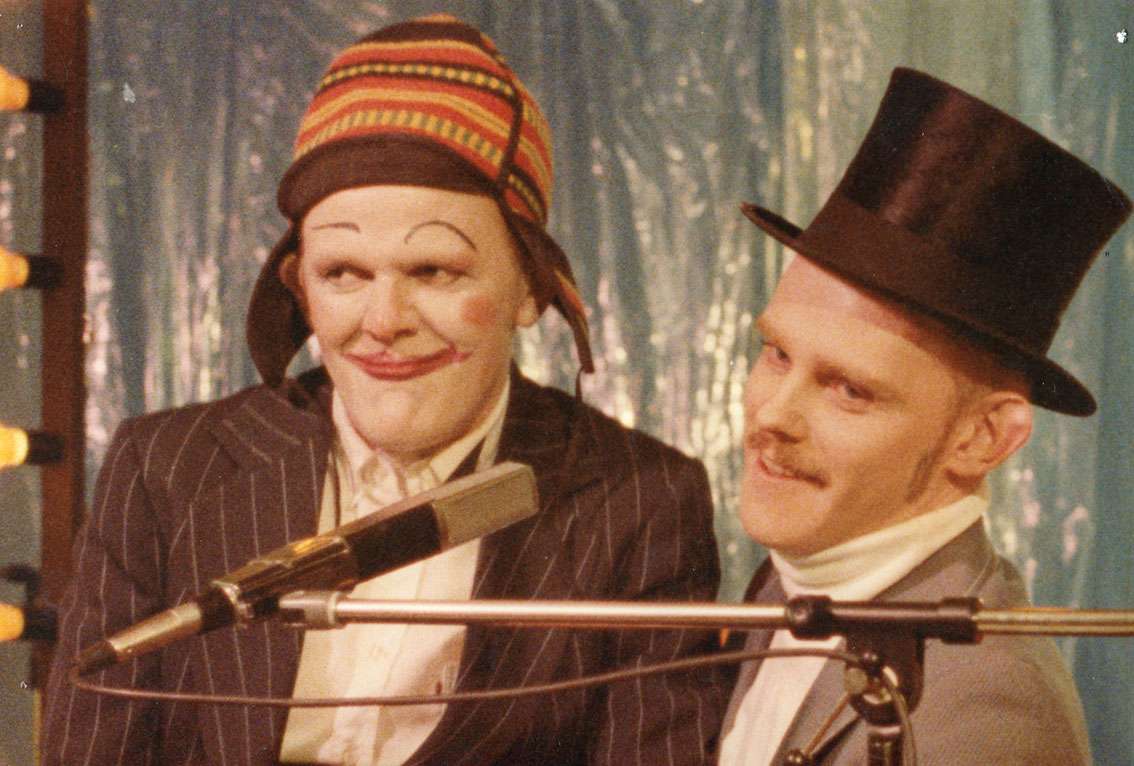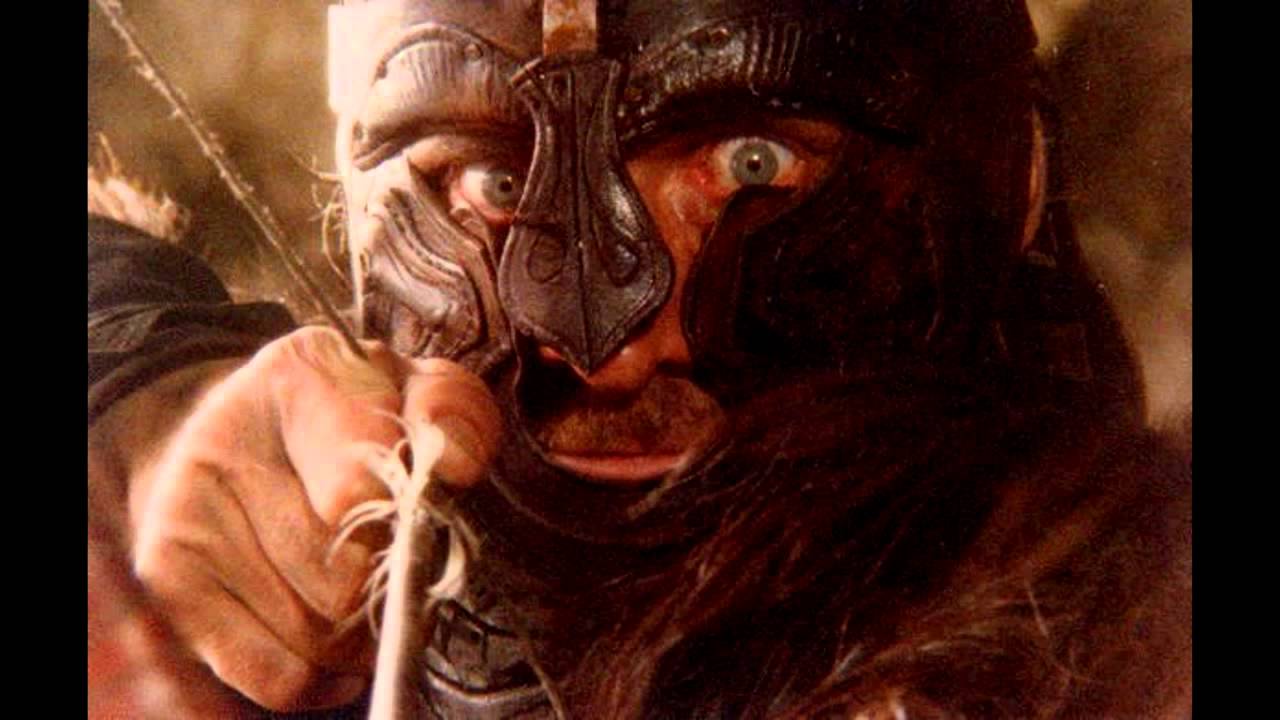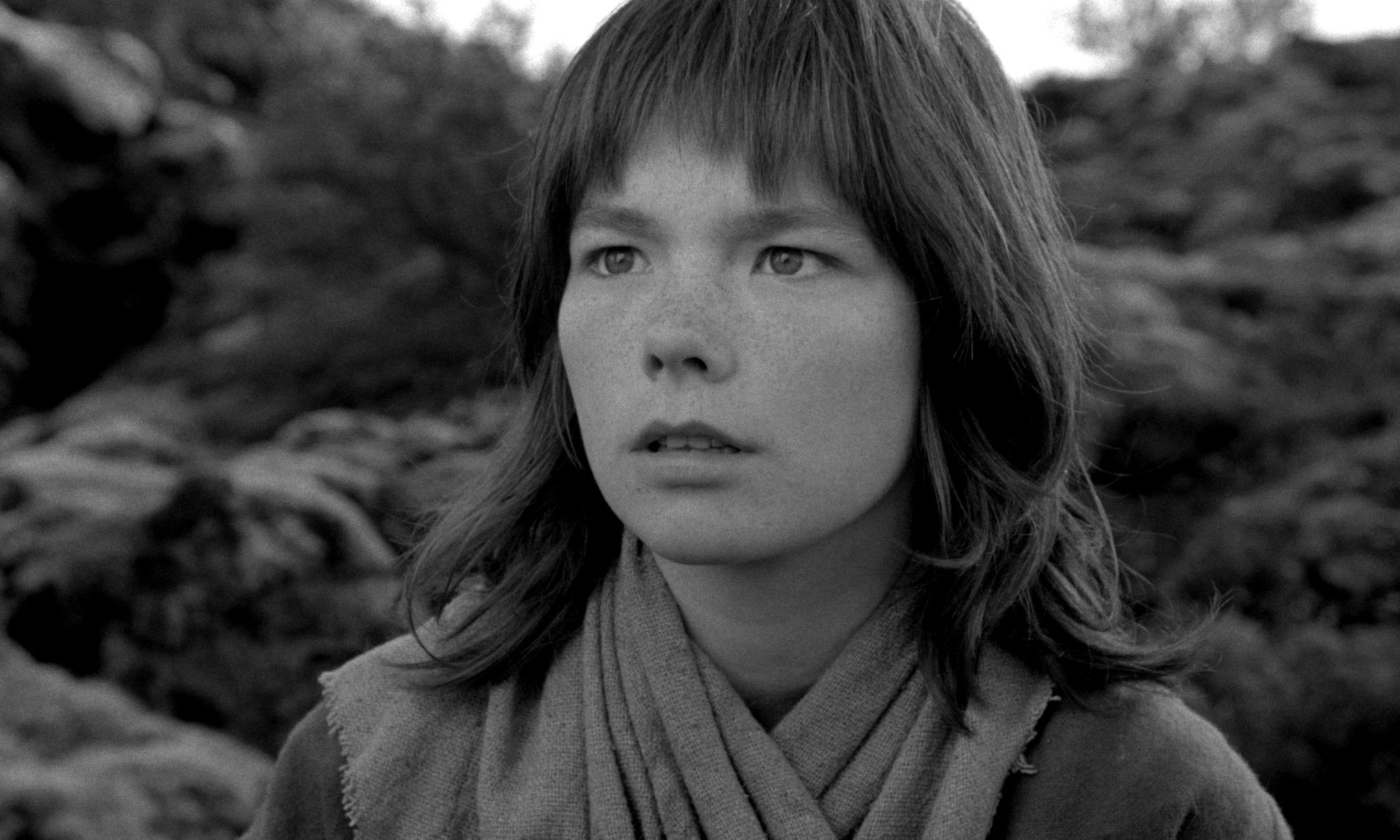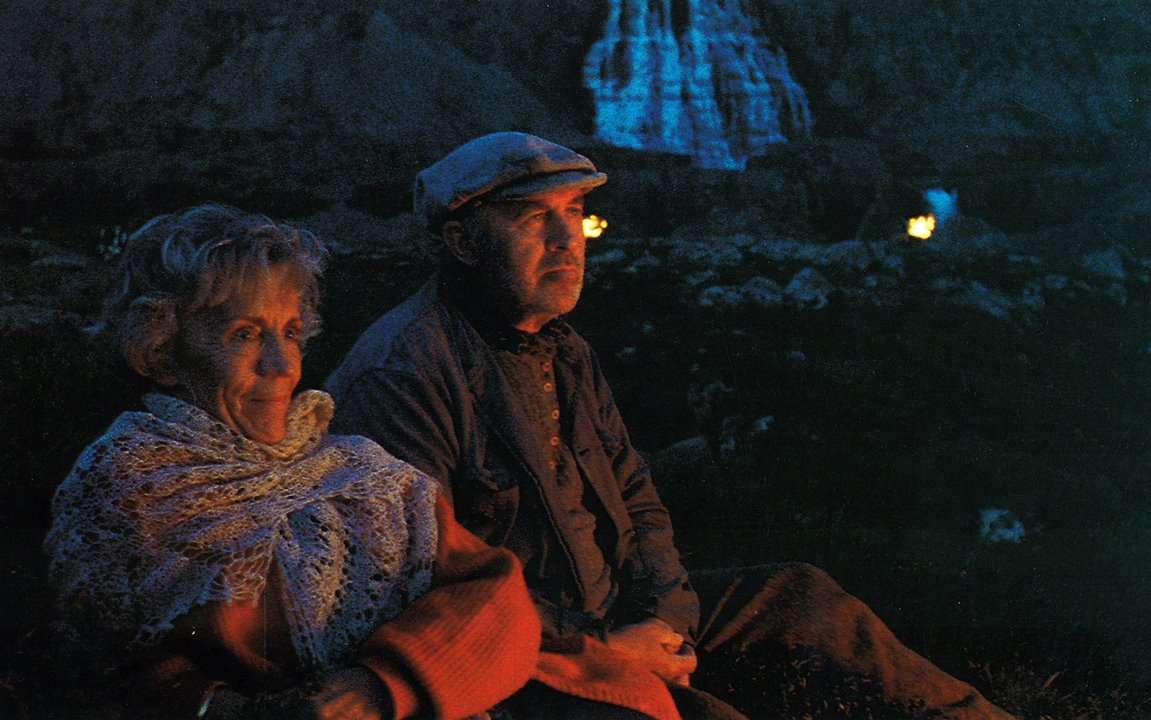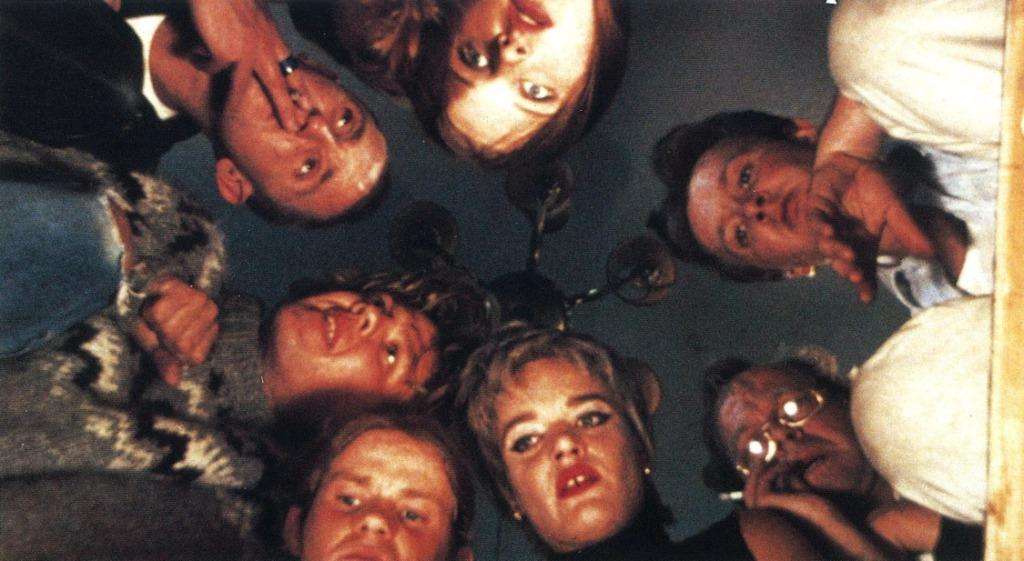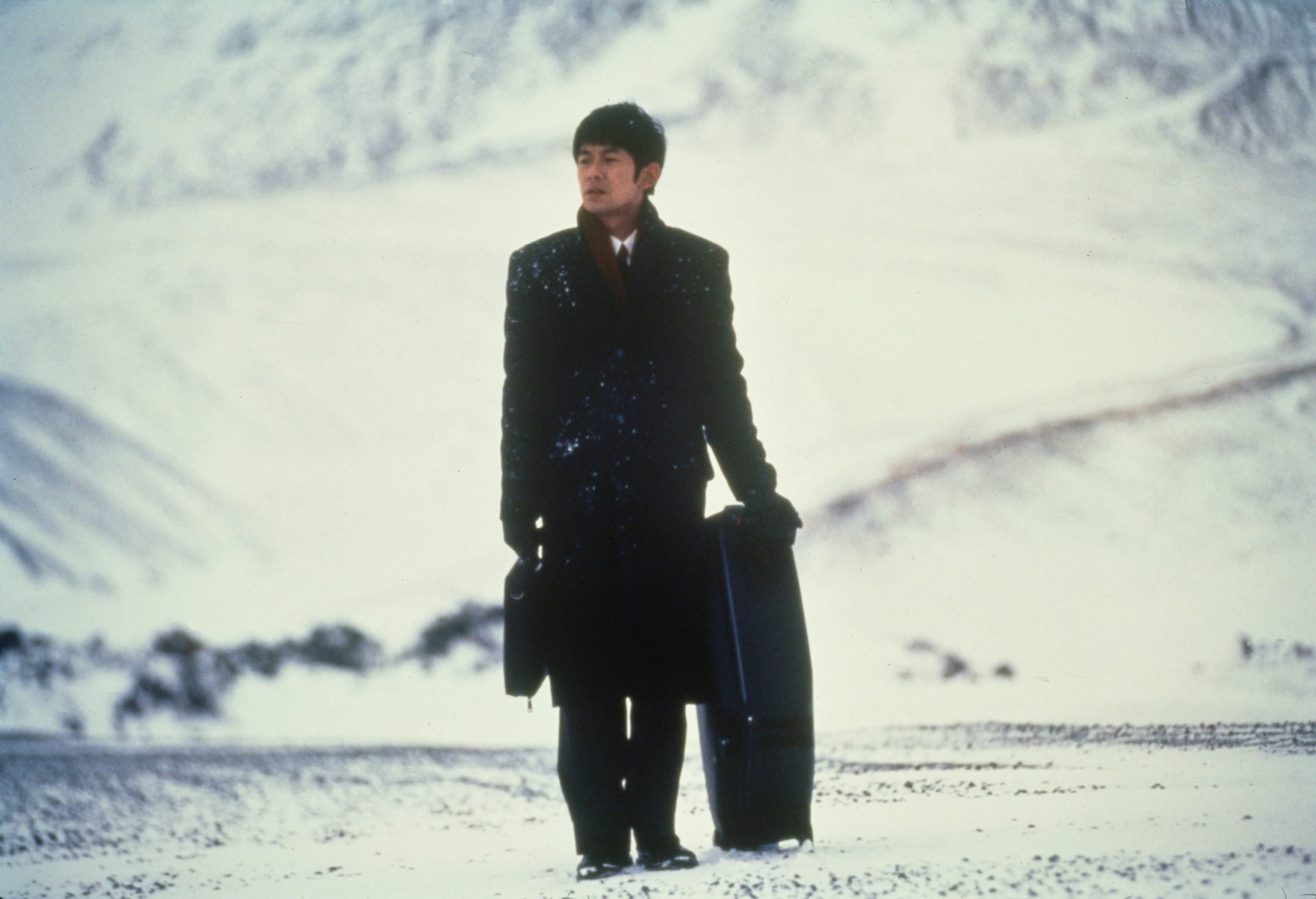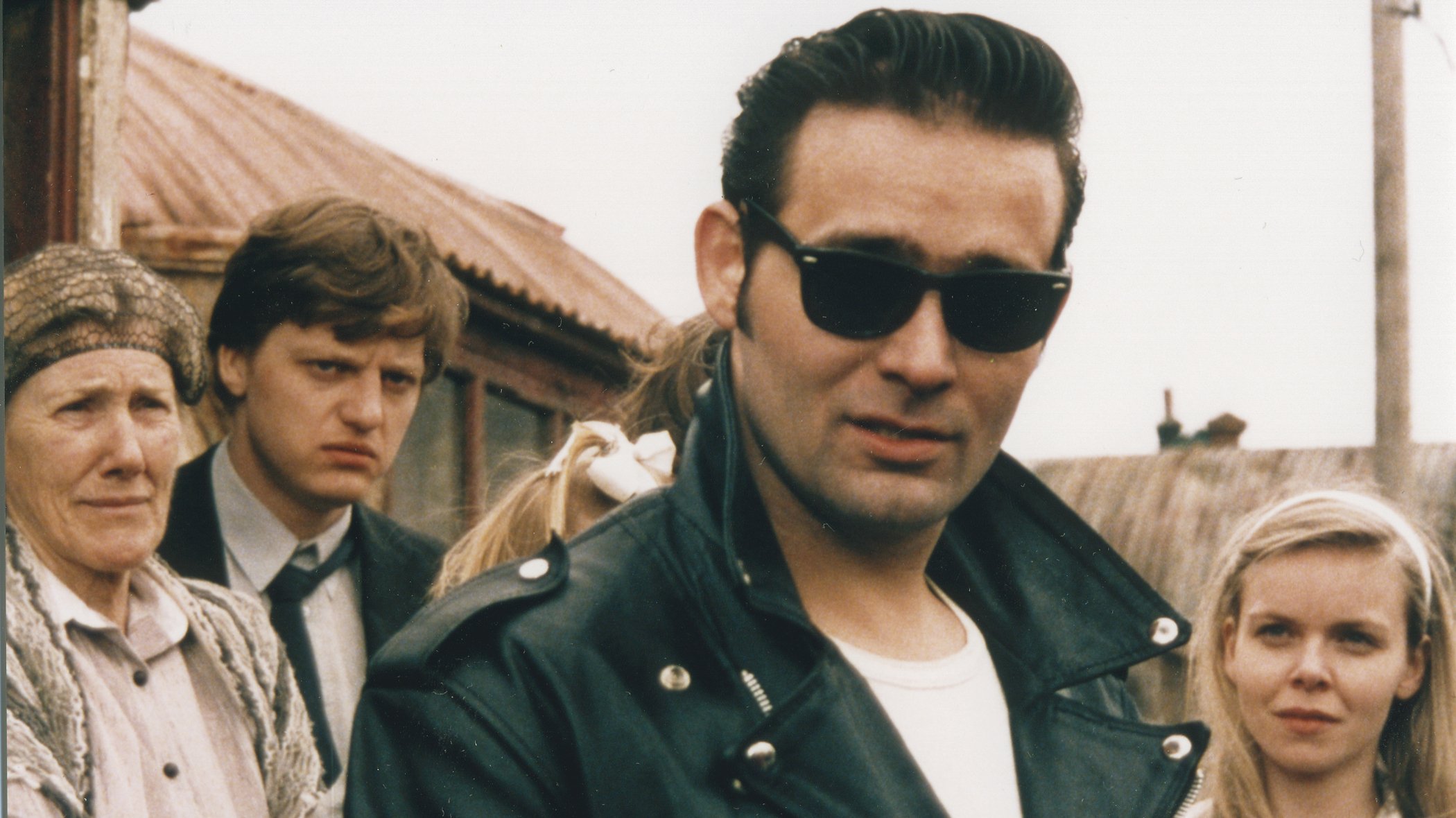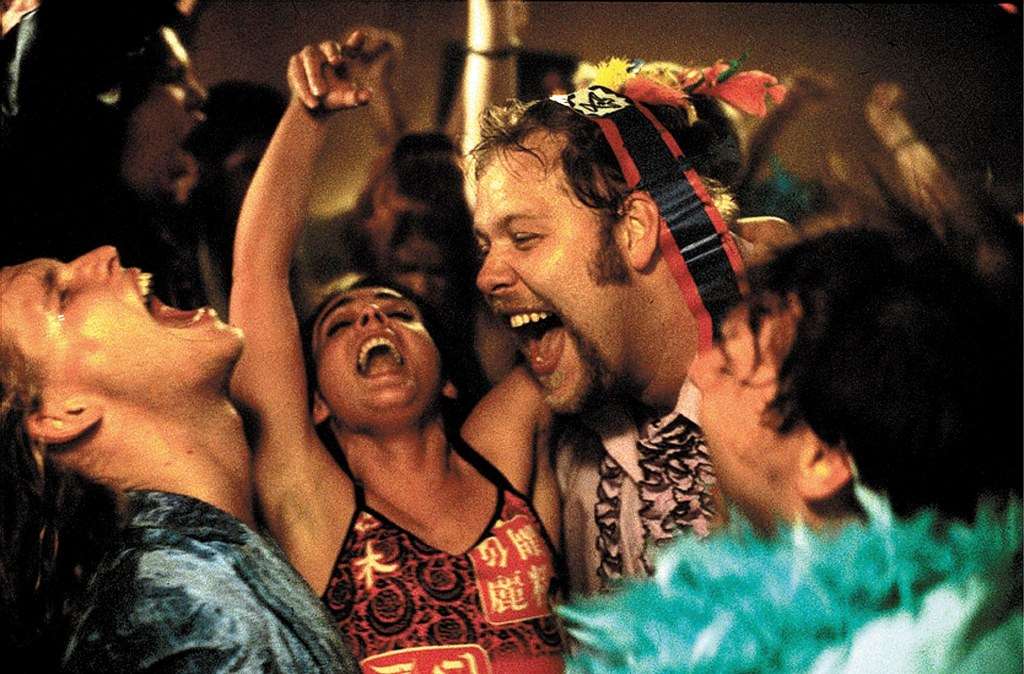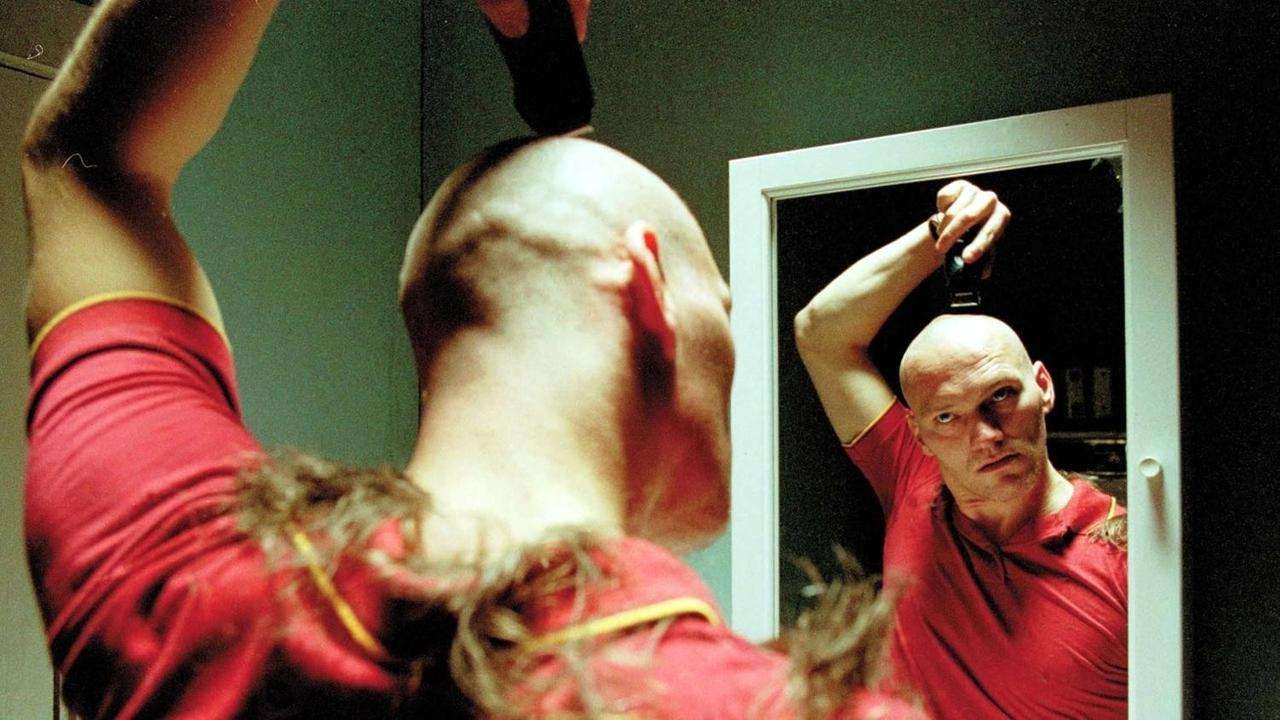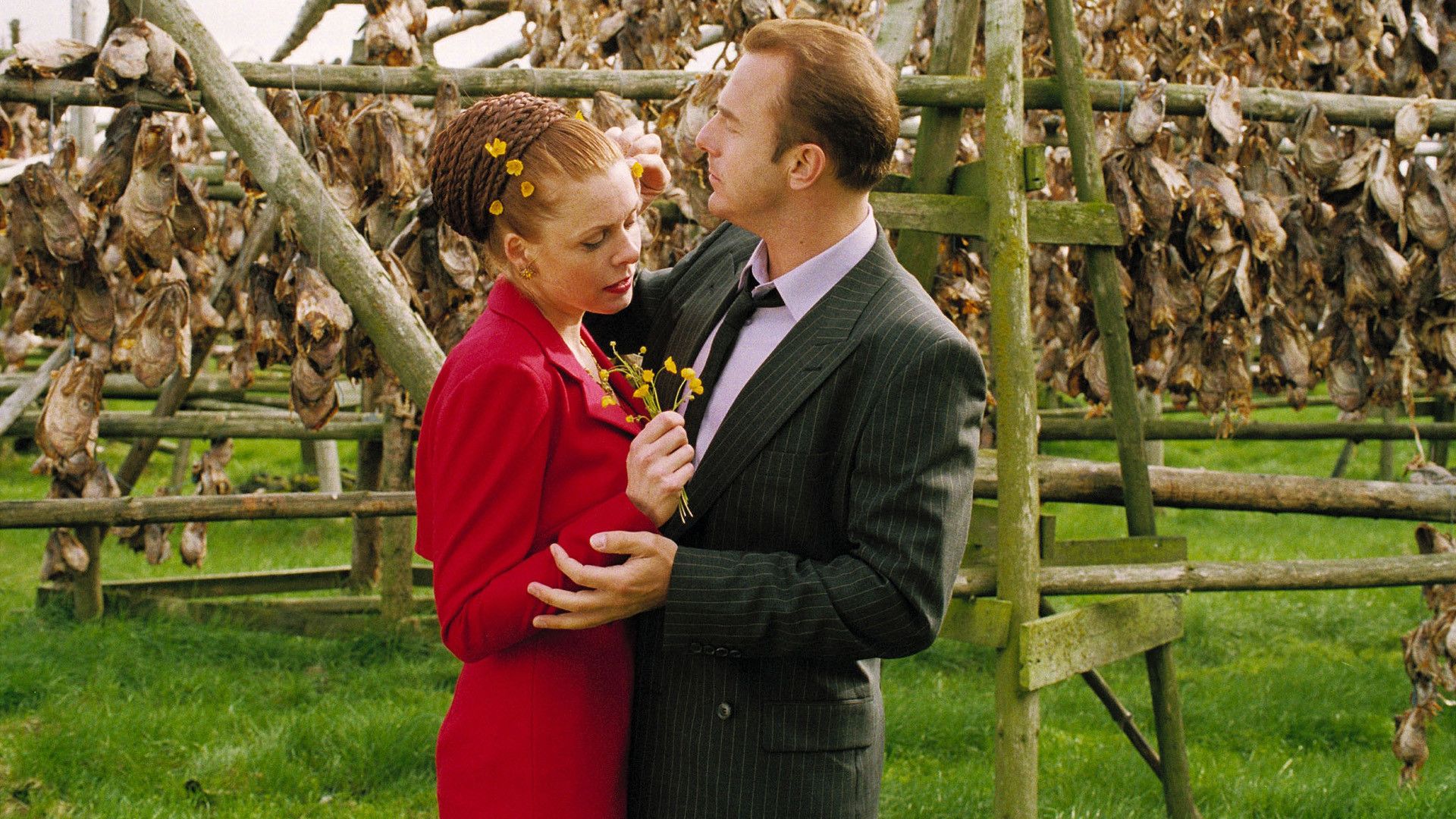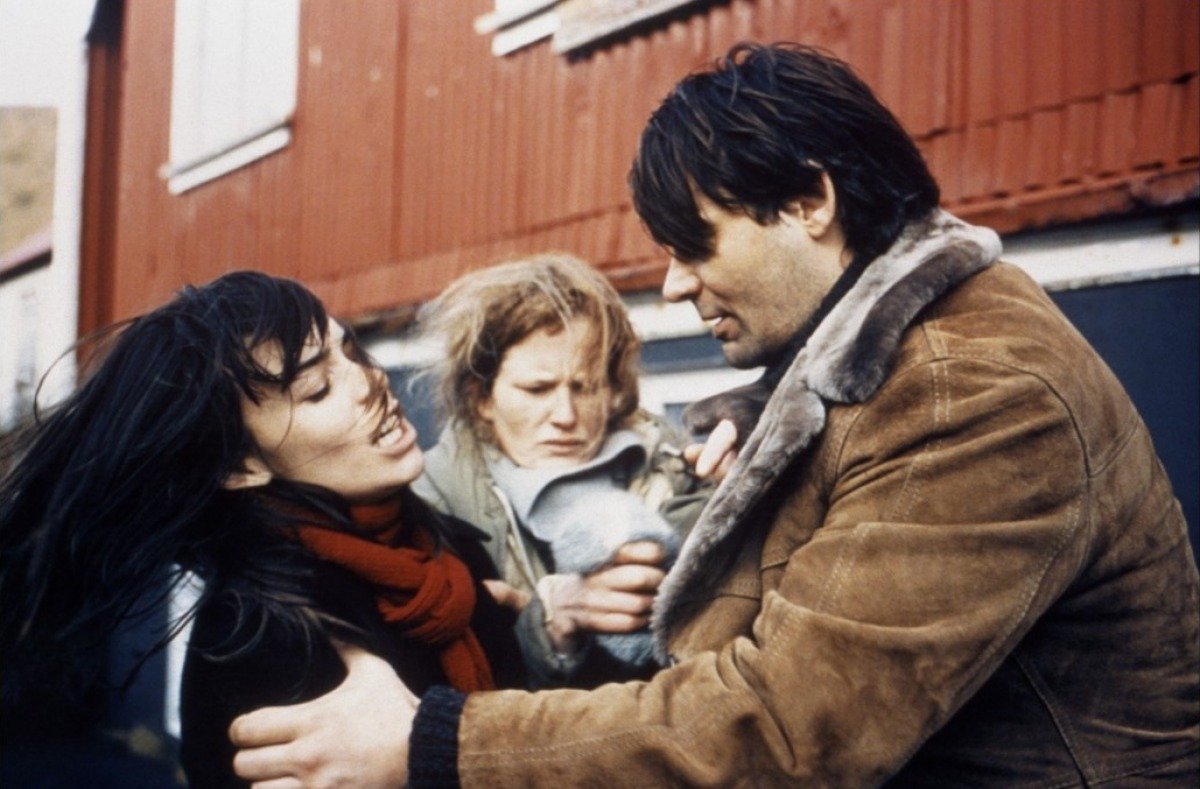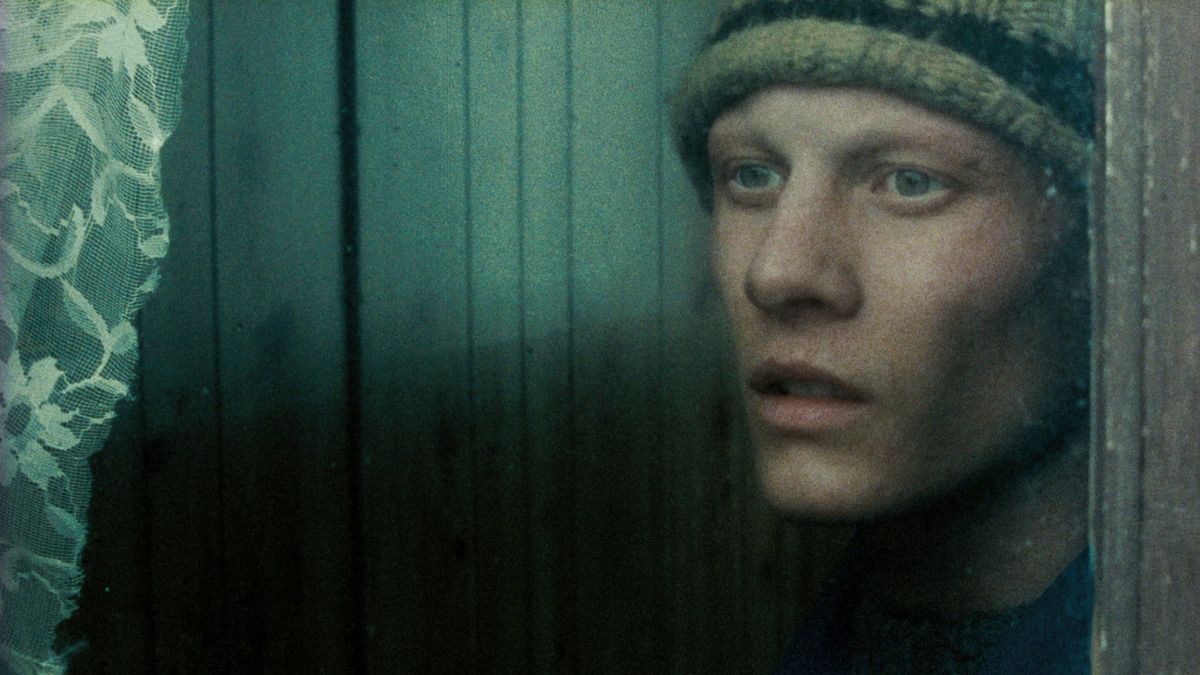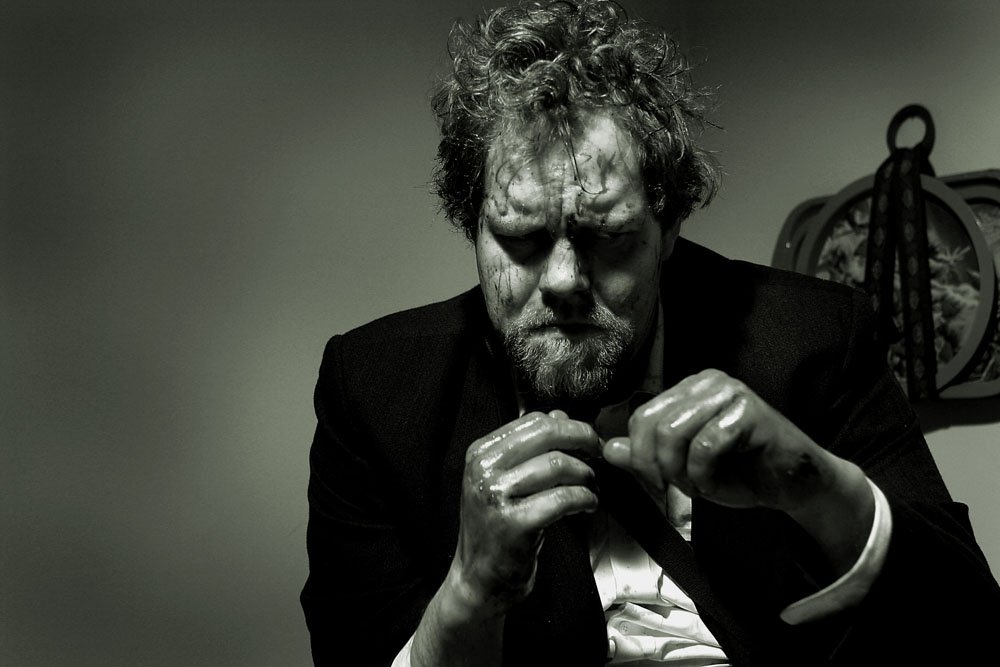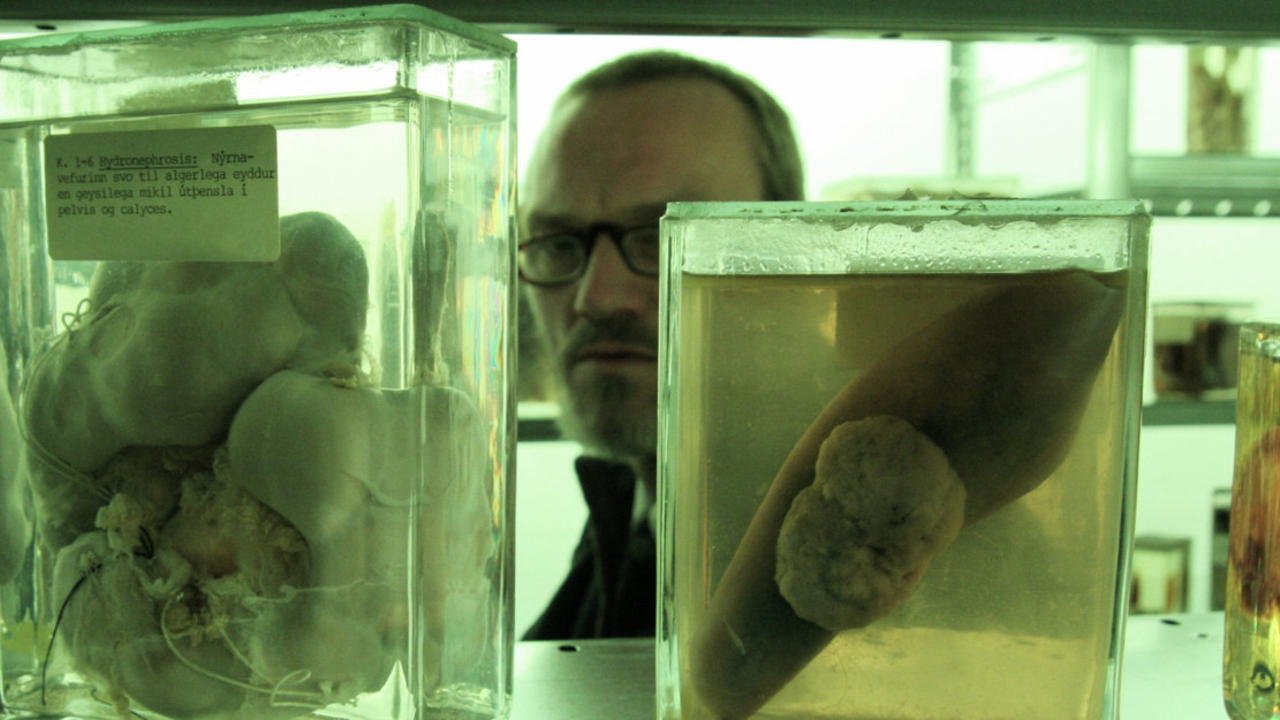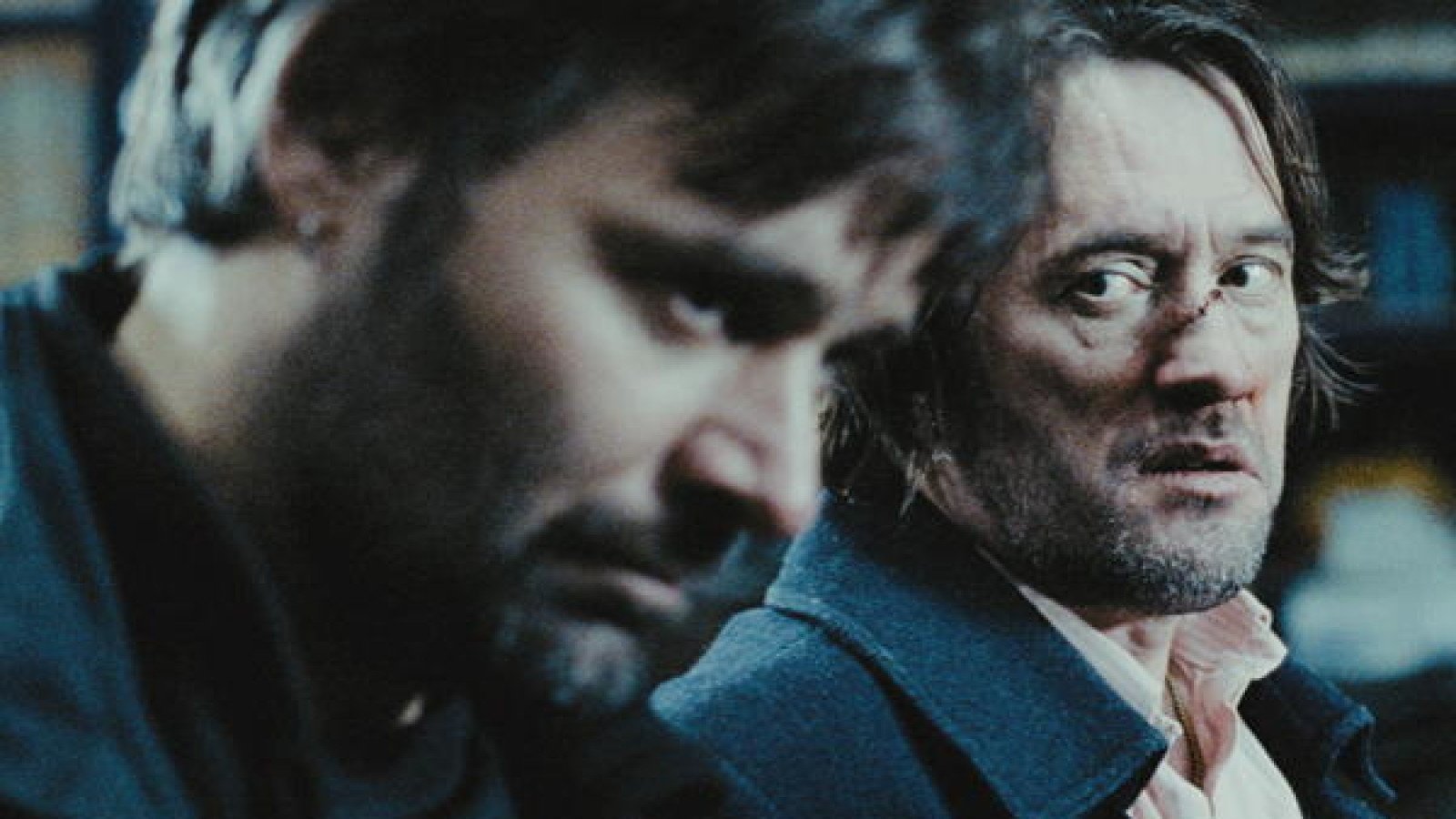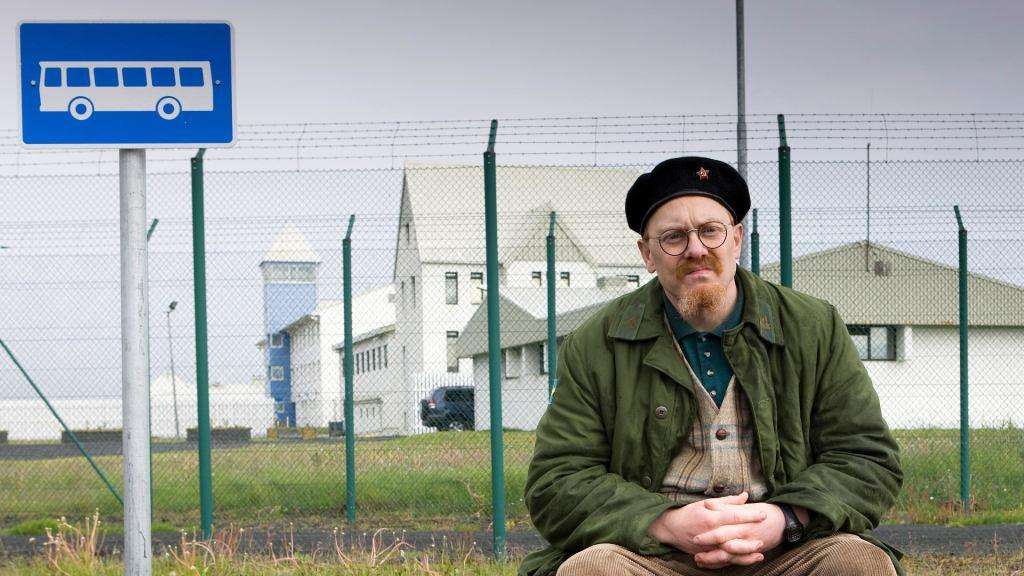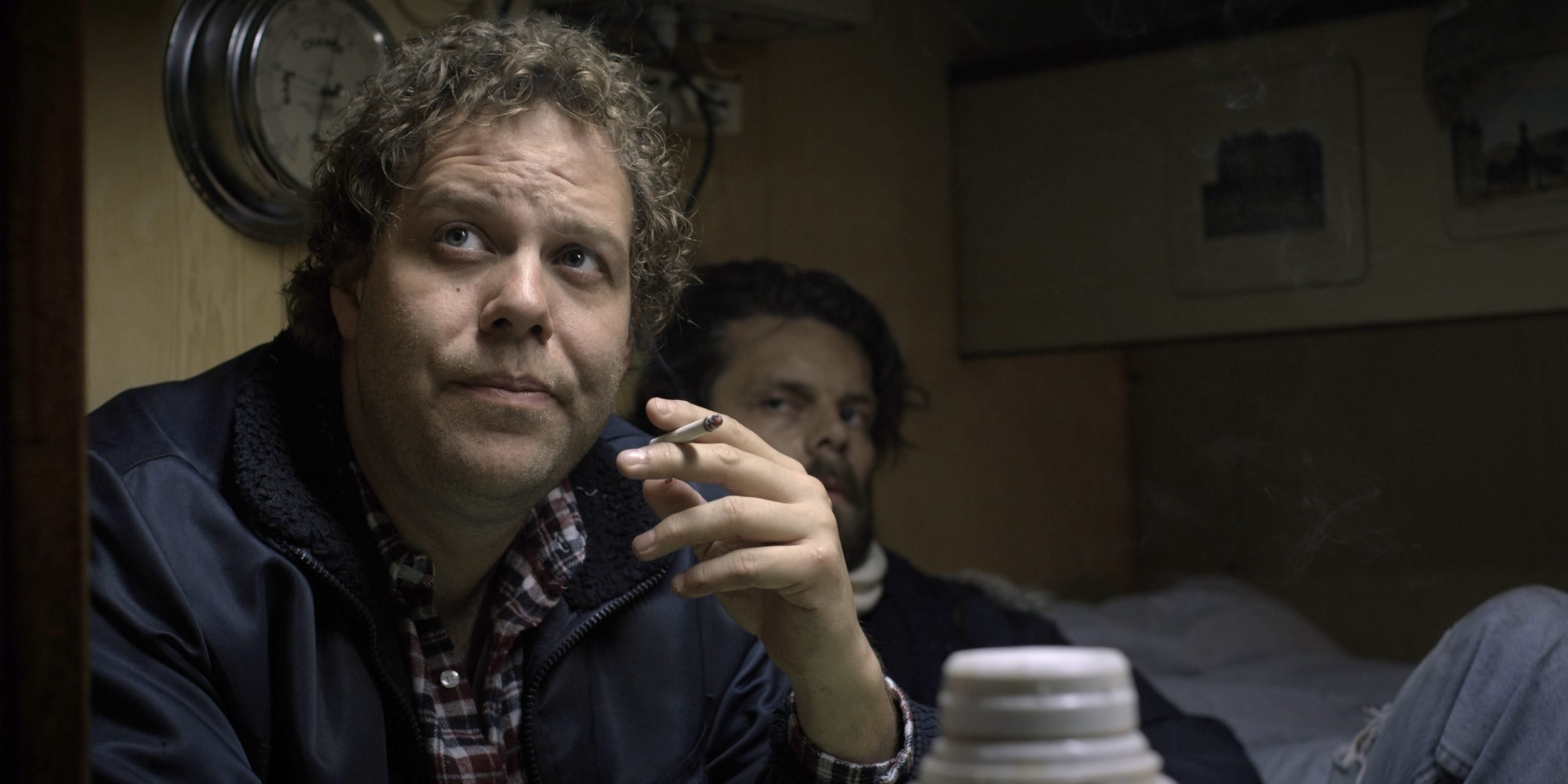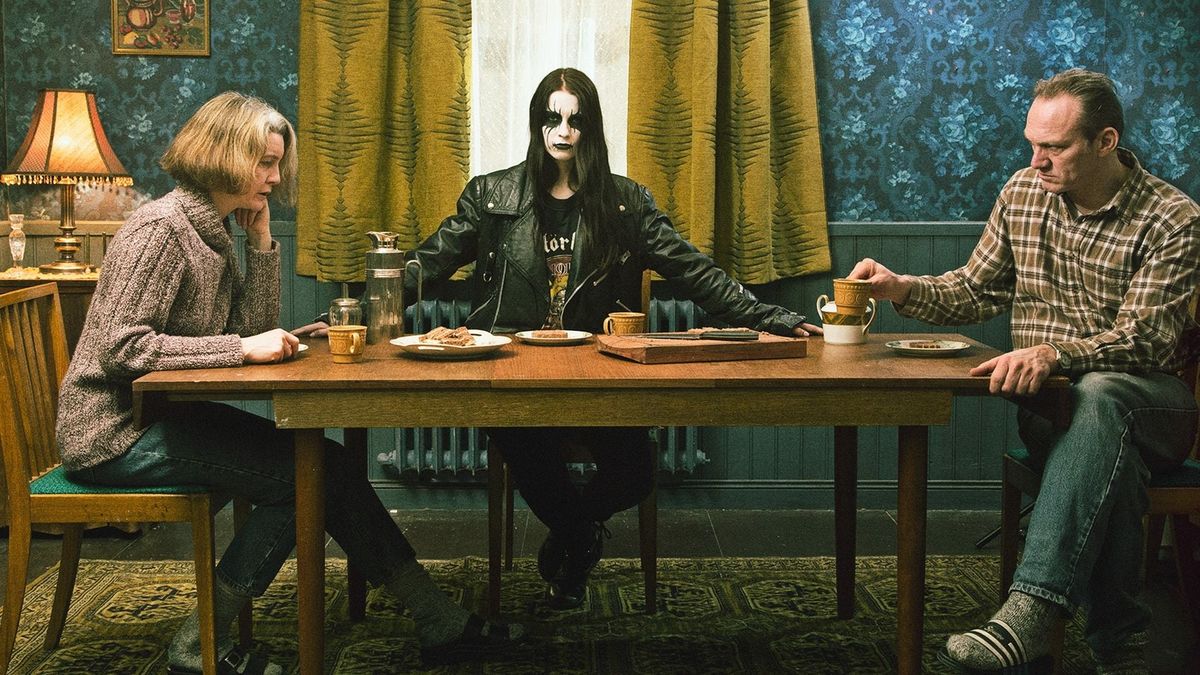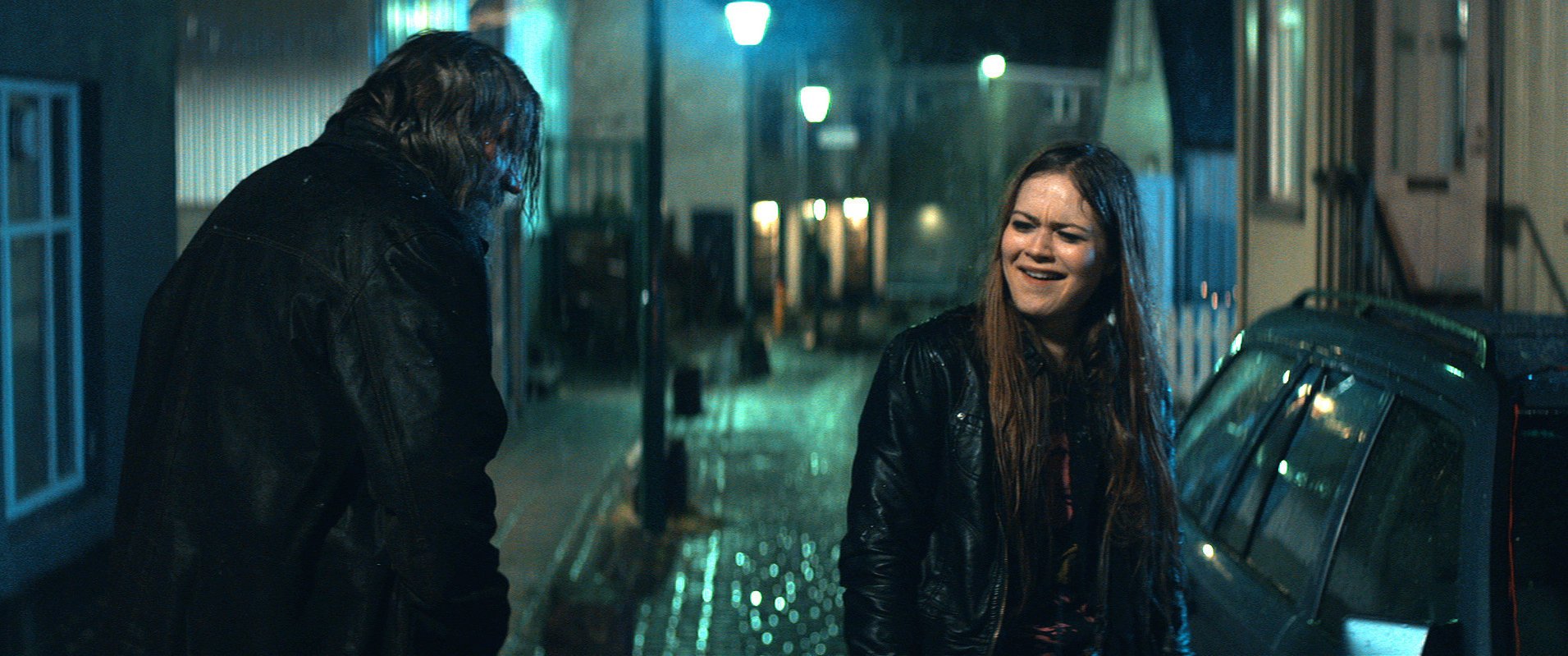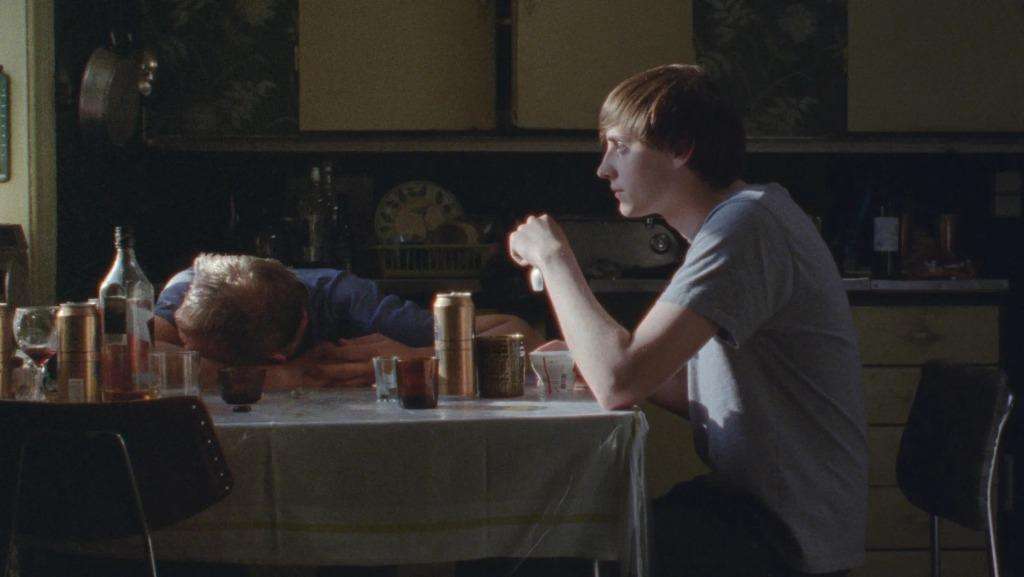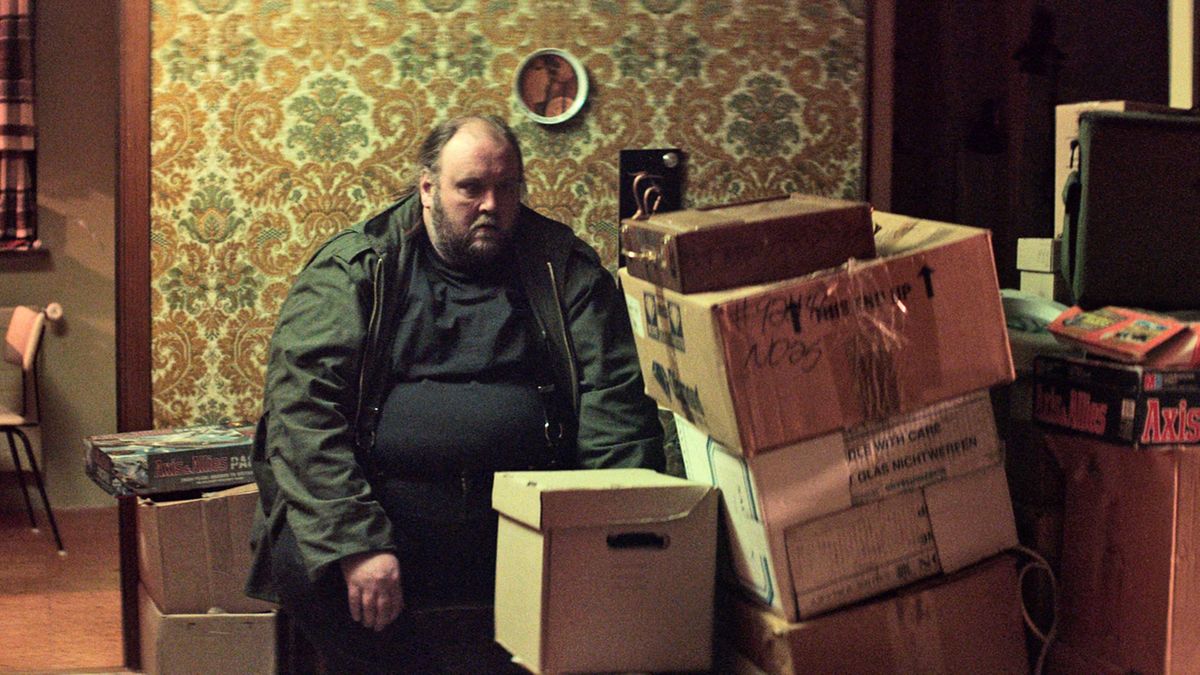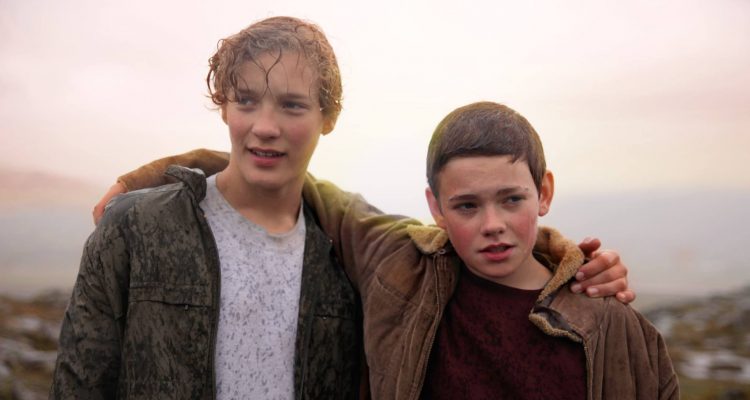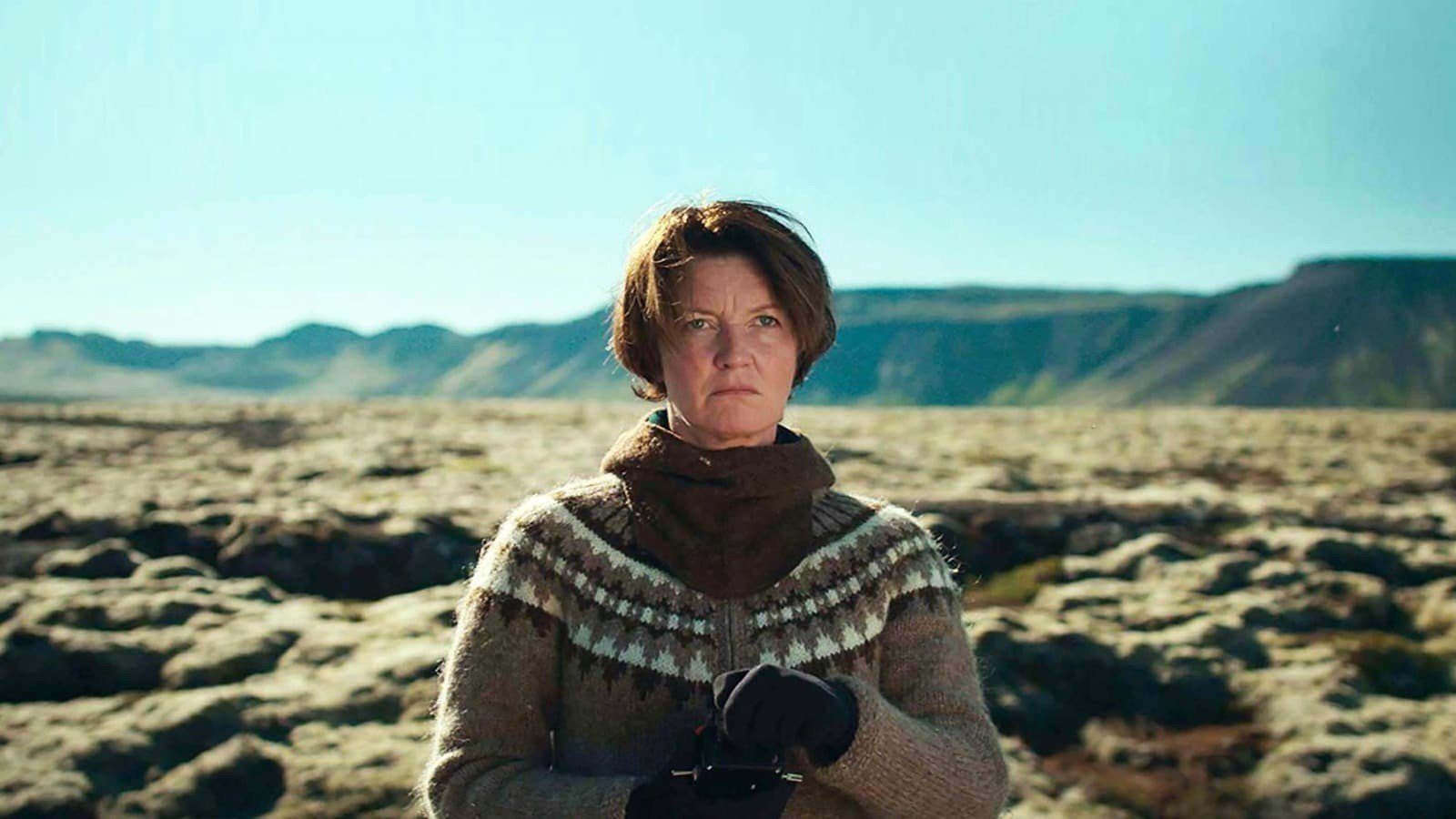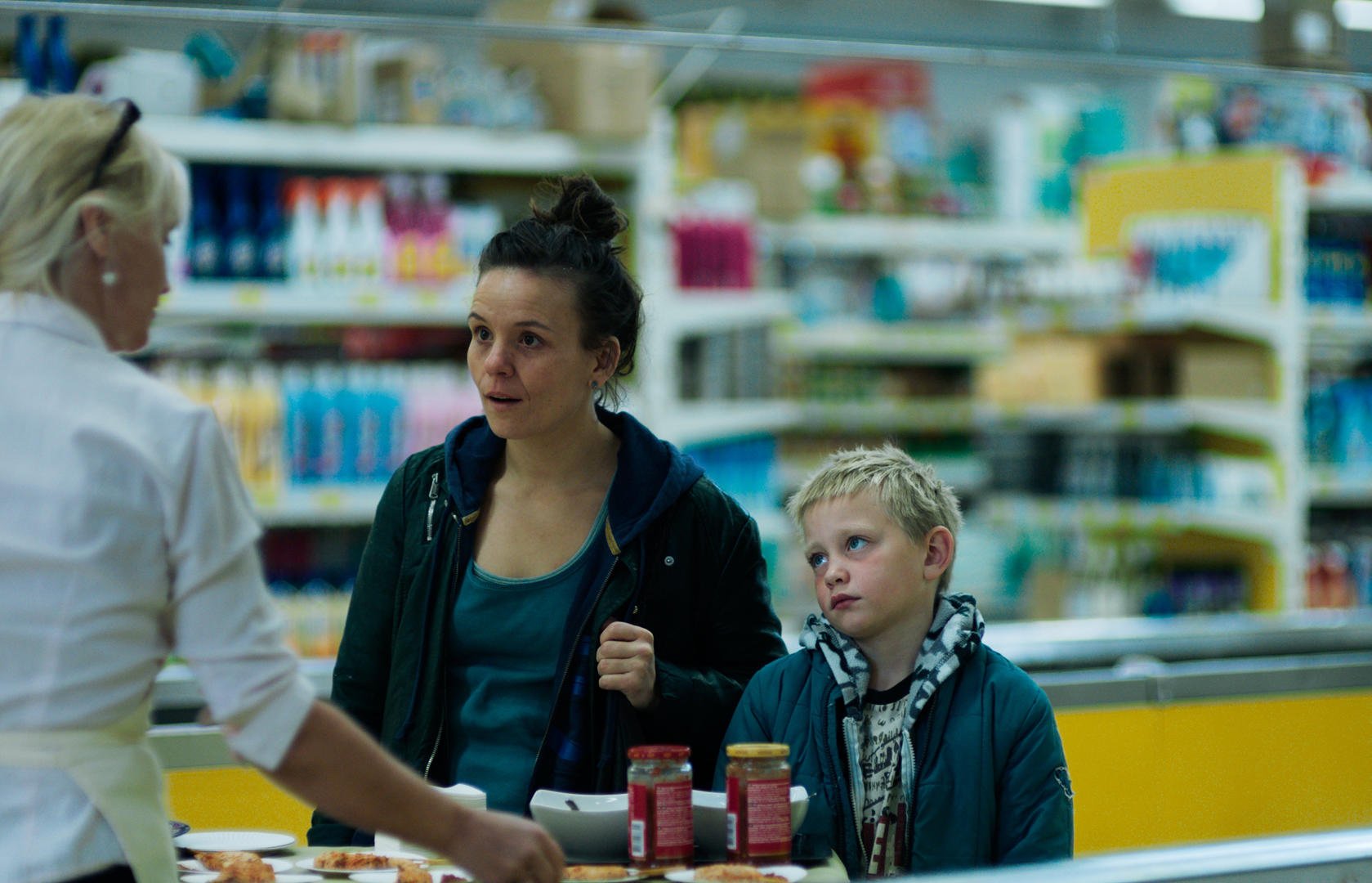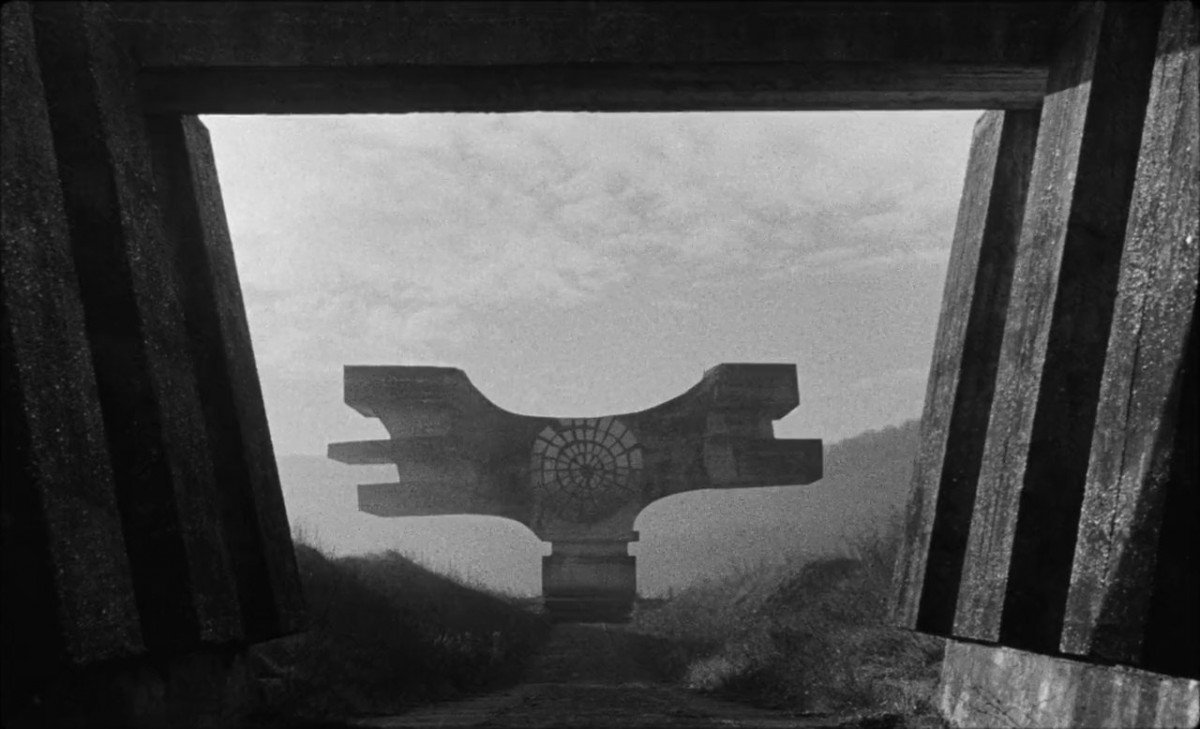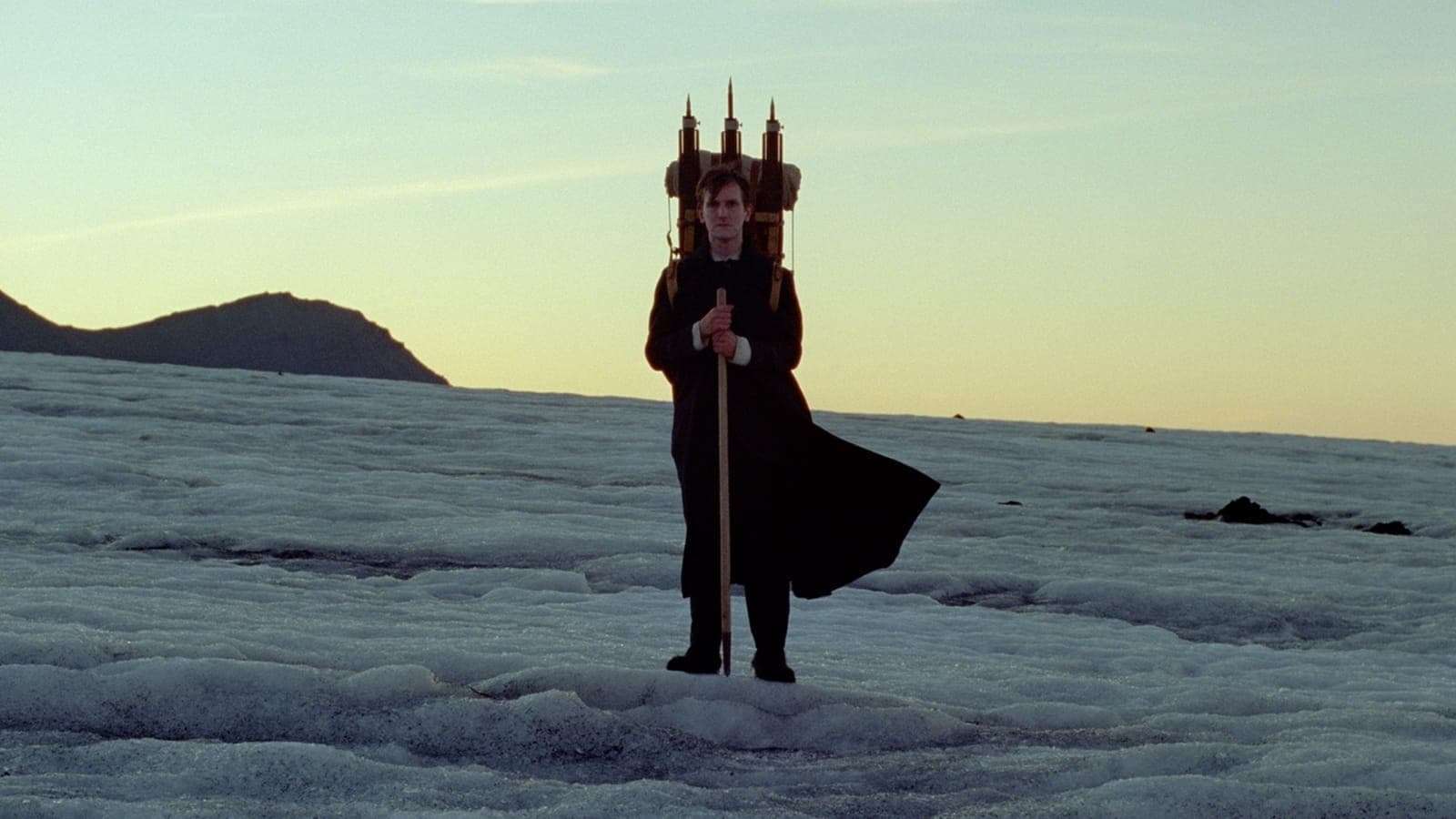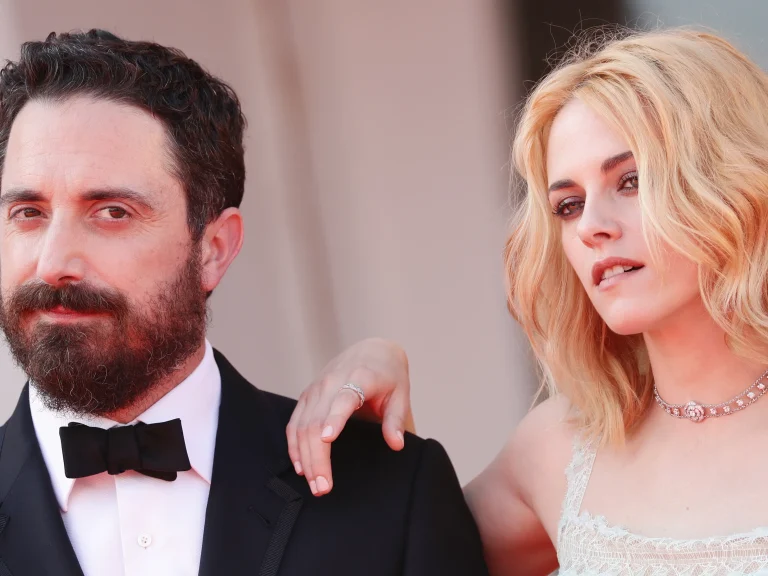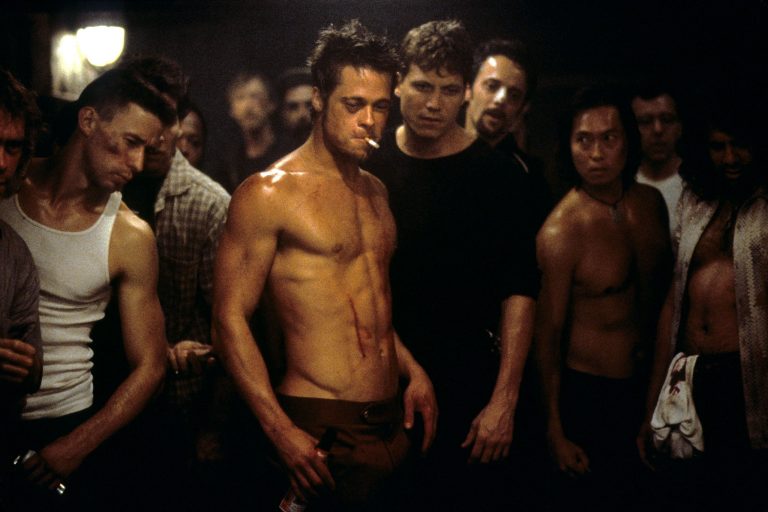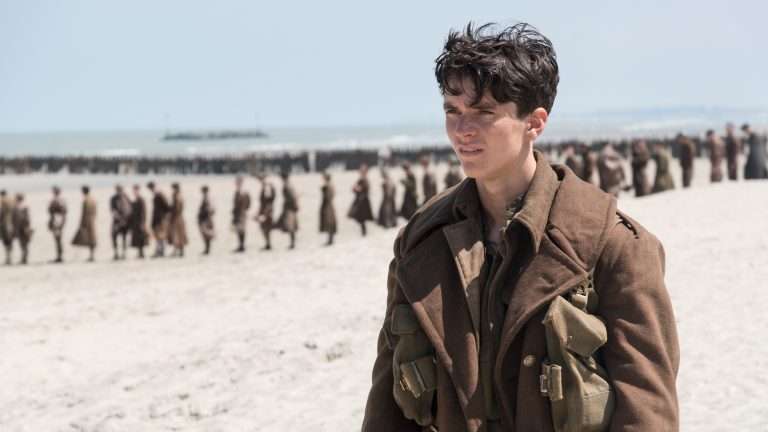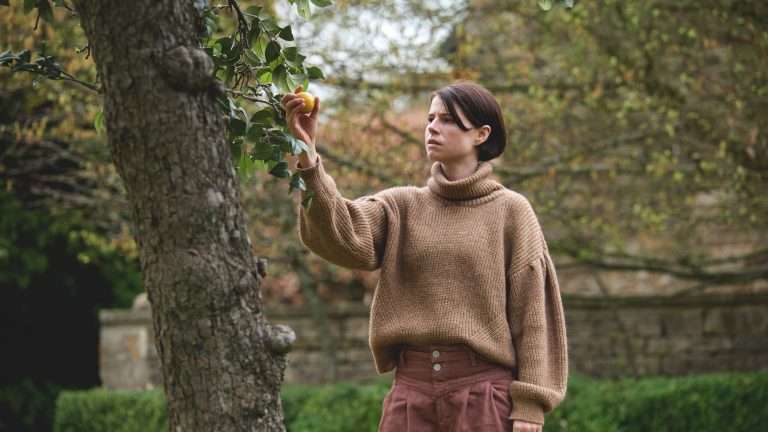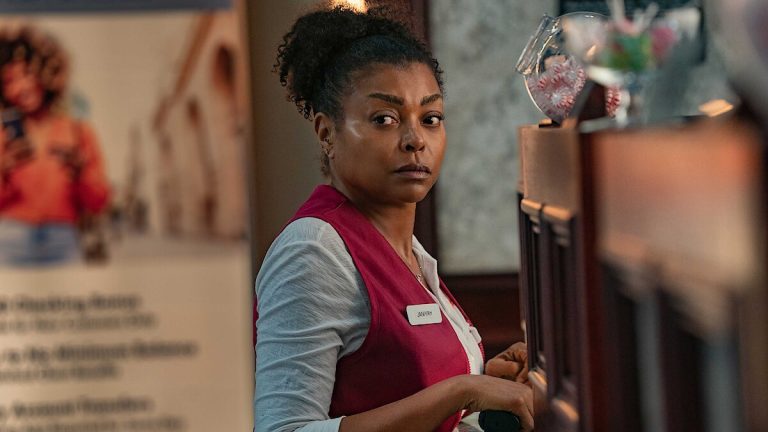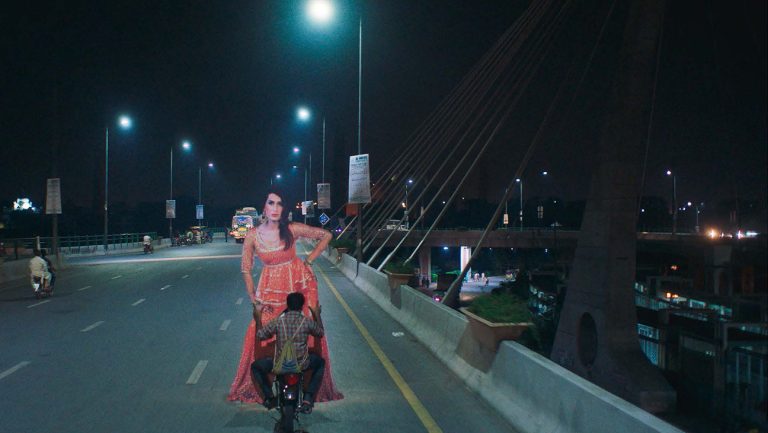35 Essential Iceland Movies That Are Worth Your Time: Iceland represents one of the world’s smallest national cinemas. The country’s population is just above 376,000. Few Nordic critics point out that even a successful local film sometimes fails to recuperate its cost at the local box office. So why bother? Isn’t it better for the largely English-speaking domestic population to just watch Hollywood blockbusters? Or couldn’t they make cheap – both in terms of money and thinking — imitation of those generic works? Well, the Iceland film-making fraternity exactly didn’t want that. Despite minimal resources, they started making cinema strictly for the native audiences and gradually evolved to weave culturally distinct yet universally resonant stories. Today, the relative quality of Icelandic cinema is simply staggering.
Iceland had been the location for making Nordic silent films in the late 1910s. The first film by an Icelander was made in 1924, yet the officially approved Icelandic feature film was made in the year 1949. Up to the early 1980s, filmmaking was considered an anomaly in the small nation. In 1978, the nation’s modern film-making journey commenced with the initiation of the Icelandic Film Fund. The home-grown films took off well thanks to the early talented Iceland directors. However, the novelty of Iceland movies soon wore off by the mid-1980s.
Recommended Read: 50 Best Japanese Movies of the 21st Century
Thankfully, in the 1990s, the Icelandic cinema saw an unparalleled explosion, thanks to pan-European funds and a new generation of filmmakers. After the 2008 financial crisis, Iceland cinema’s future was again forced into a precarious position. Yet, their filmmakers continue to provide excellent, multiple award-winning works in the subsequent decades too. Some may say that there’s nothing great about Iceland cinema. It may have limited scope and almost always have a brooding, distressing mood. Still, in this increasingly homogenized world, it is exhilarating to watch the survival of the unique domestic film industry (time for an interesting trivia: in 2009, Iceland’s comedy Mr. Brajnfredarson beat Avatar in the local box office).
Producing this list of good Icelandic cinema has been a hard but enjoyable task. I wasn’t able to include a few acclaimed Iceland comedies because it isn’t available [mostly I wanted to see — New Life (1983), A Policeman’s Life (1985), and Stella On Holiday (1986)]. If I am unaware of any other Iceland movies not mentioned throughout the list, please educate me in the comments section. Anyway, here’s my selection of essential cinema to contemplate the human condition in Iceland’s landscapes:
1. Land and Sons (1980)
Movie critics often cite Agust Gudmundsson’s Land and Sons (Land og synir) as the origination point of contemporary Icelandic cinema. It was based on Indridi G. Thorsteinsson’s novel (father of renowned crime-fiction writer Arnaldur Indridason). It’s a story about a generation of weary farmers dwelling in a remote valley north of Iceland.
The film deals with typical themes you may expect from a narrative set in cold, isolated land: the unyielding bleakness of the rain-swept landscape, the degradation of familial bonds, and the distant dreams of the younger generation. Despite the occasional ineptness in acting and production, Land and Sons was the first Iceland movie to ponder about urban expansion and the rapidly changing social & economic climate. The movie was also infamously known for the unsimulated shooting of a horse.
2. On Top (1982)
Agust Gudmundsson, who scored domestic box-office hits and international acclaim with the films Land and Sons (1980) & Outlaw: The Saga of Gisli (1981), ventured into a comedy genre with On Top. This widely popular Icelandic musical comedy revolves around two rival bands – one all-male and one all-female – who compete with each other from town to town. Played by real musicians from real bands, On Top opens with amusing vignettes introducing each band member. In the film, the lead male and female singers of the rock band are actually lovers. However, a heated argument over professional and personal issues leads to a rift in the band, and fierce competition ensues.
On Top is an exuberant little film full of heart, energy, and mischief. The comedy thrives on the alleged oddities of the country and its inhabitants. The wackiness of the performances and carnivalesque mode of the narrative will work even for an audience who hasn’t grown up with it. Gudmundsson’s filmmaking techniques also look pretty sophisticated for an emerging national cinema.
Related to Best Iceland Movies: The 10 Best French Musicals
3. When the Raven Flies (1984)
Hrafn Gunnlaugsson wanted to make an authentic Viking-era movie in order to counter the insipid Hollywood stereotypes. Swedish producers Bo Jonsson and Gunnlaugsson wrote the story, which was predominantly inspired by Akira Kurosawa’s Yojimbo, John Ford’s The Searchers, and the sagas of early Icelanders.
Known as the Icelandic film industry’s first international co-production, the movie churned out a brooding revenge narrative. The story opens with Vikings plundering an Irish village. A young boy witnesses his parent’s murder and the kidnapping of his sister. Two decades later, he arrives at the Icelandic beaches for revenge and to learn about his sister’s whereabouts. Although Gunnlaugsson’s aesthetic flourishes aren’t half as good as the aforementioned cinematic masters’, he should be commended for a realistic rendition of an ancient time and place. ‘When the Raven Flies’ is followed by fairly good sequels — ‘Shadow of the Raven’ (1986) and ‘The White Viking’ (1991).
4. The Juniper Tree (1990)
Nietzchka Keene’s self-funded feature is an adaptation as well as a feminist re-imagining of the Grimm Brothers’ fairy tale. It marks the acting debut of Icelandic pop star Bjork. Set in the medieval era and shot in spellbindingly stark black-and-white, Juniper Tree is a coming-of-age tale of a young woman named Margit (Bjork), whose mother is murdered for allegedly practicing witchcraft. The mother is buried under the juniper tree. Margit and her sister Katla leave their home. Katla marries a widowed farmer, Johann, who has a young son. Naturally, the situation turns violent, and the outcome is devastating.
There are no clear-cut villains or simple messages of morality in Nietzchka’s haunting drama. She undercuts the layers of misogyny that are prevalent in fairytales. But the most mesmerizing aspect of Juniper Tree is its arresting imagery, which pays ample tribute to Ingmar Bergman.
Related to Best Iceland Movies – Katla (2021-) Netflix Review – A Nordic Slow-Burner with a Mix of Folktale and Science Fantasy
5. Children of Nature (1991)
The 1980s Iceland movies were largely inspired by home-grown mythical tales & sagas. Moreover, these films were made for Icelanders. However, in the 1990s new generation of filmmakers deeply contemplated their nation’s social themes yet injected universal emotions to resonate with film lovers around the world. In that way, Fridrik Thor Fridriksson’s Children of Nature (Börn náttúrunnar) marks the great international breakthrough of Iceland cinema.
While the aesthetic sense of 1980s Iceland movies borrowed from major directors like John Ford and Sergio Leone, the 1990s Icelandic cinema had a more subtle art-house film form. Mr. Fridriksson, in the 1970s, ran a film society that had more than 2,000 members. It was a revolutionary number, considering the nation’s population, and remember that this was before the video-revolution era. Therefore, it also involved careful transportation of 35mm or 16mm films for screening. Later, Fridriksson worked with the government to establish the Reykjavik Film Festival and to set up the Icelandic Film Fund.
Before Children of Nature, Fridriksson mostly made documentaries. He made his first feature film in 1987 – White Whales. Neither the documentaries nor the debut feature doesn’t stand close to the brilliance of Children of Nature. The film chronicles the journey of two geriatric couples who escape from Reykjavik’s old age home to reach their birthplace, situated in remote fjords. Fridriksson’s minimalist film-making style is mostly character-driven, moving at a glacial pace.
Recommended Read: The Chestnut Man (Season 1) Netflix Review – Nordic Noir at its finest
The old people’s odd pilgrimage takes us through the haunting and stunning beauty of Iceland’s raw countryside. This is a very simple road movie about an old couple reinstating their dignity. Yet the passages of sublime visual beauty and restrained performances make it a very memorable one. Although the film deals with tragic themes, Fridriksson spikes the narrative with a fine dose of observational comedy and whimsical vignettes. Children of Nature became the first Iceland film nominated for an Oscar, leading to its international distribution. Mr. Fridriksson used the profits from distribution deals to buy production equipment.
6. Remote Control (1992)
While guns set up narrative conflicts in Hollywood films, a missing remote control drives this tale of Reykjavik’s underworld. Oskar Jonsson’s debut feature, Remote Control (Sódóma Reykjavík), revolves around young mechanic Axel (Bjorn Jorundur Fridbjornsson), his mother, and his hard-partying sister Maeja. Axel goes on to retrieve the TV remote for his mother, which the sister accidentally took.
In this absurd quest, he gets embroiled in the conflict between a local liquor smuggler and a nightclub owner and also falls in love. Remote Control’s comedic sense is considered to be too ‘Icelandic’ to be fully appreciated by foreigners like me (and the English subtitles don’t make sense now and then). However, the peculiar and silly antics of the imperfect characters make it an enjoyable comedy, providing a fine counterpoint to the nation’s bleaker visions of life.
7. Cold Fever (1995)
Fridrik Thor Fridriksson’s fourth feature film has an enchanting transnational narrative. American indie filmmaker Jim Jarmusch was invited (in the early 90s) for the screening of his brilliant anecdotal comedy Mystery Train (1989) at the Reykjavik Film Festival. Producer Jim Stark made the visit on Jarmusch’s behalf.
When Fridriksson and Mr. Stark had an amiable conversation, there were talks of making a film. Stark asked the director to include Japanese actor Masatoshi Nagase in his new story ideas. Later, Fridriksson traveled to Japan to get a grip on his story when he came across the news about the death of two Japanese scientists in Iceland (by drowning). Japanese people traveled to Iceland to perform the due rituals for those scientists. Subsequently, Fridriksson was bestowed with a narrative idea (Jim Stark also co-wrote the script for Cold Fever).
The film is about a young Tokyo executive, Hirata, traveling to Iceland to perform ceremonies at the site of his parents’ death. Alas, he chooses to visit the nation in the middle of winter and has many strange, magical adventures. Similar to all the great culture-clashing road movies, Cold Fever is memorable for its oddball characters. Director Fridriksson portrays nature in the same way as the people – both cruel and unbelievably poignant. Similarly, the culture gets blurred as Hirata binds with the inapprehensible native people through the common thread of humanity.
8. Devil’s Island (1996)
Fridrik Thor Fridriksson follows up Children of Nature & Cold Fever with yet another good, wry comedy based on Einar Gudmundsson’s novel. The film is set in the 1950s in the squalid premises of Reykjavik. Renowned Iceland director Baltasar Koramkur plays rebellious Baddi, whose mother has left him and his introverted brother Danni for an American soldier. The brothers move into abandoned army barracks with their weary grandfather and haranguing grandmother.
Fridriksson opens the film with a marriage and ends it with a funeral. In between the extreme rituals lie the quirky, tragic, and unpredictable small-scale adventures. The narrative mostly unfurls in episodic vignettes, rejecting the notion of centering its tale on one particular character. Devil’s Island could be read as the allegory for Iceland’s mordant Americanization. The sullen characters of the movie are left to feed on the unsavory parts of a culture that isn’t theirs.
9. 101 Reykjavik (2000)
Baltasar Kormakur’s crowd-pleasing black comedy doesn’t have any particularly likable characters. Protagonist Hlynur (Hilmir Snaer Gudnason) is a man-child who sleeps, drinks, rummages through porn collection, and engages in meaningless relationships with several women. Slacker would be too simple a word to describe his existence. His bleak, hopeless life with his mother goes unchanged until the arrival of a sexy Spanish house guest, Lola (Victoria Abril). Yes, of course, Hlynur is romantically interested in her. Alas, Lola becomes his mother’s lover. Although Hlynur isn’t an appealing character, Gudnason’s effortless performance exposes the distracted guy’s vulnerability.
The comedic elements aren’t very unique and mostly rely on oddity and surprise. Yet Gudnason boosts the funny quotient of the narrative. Baltasur Kormakur’s comedic style reflects Aki Kaurismaki’s works, whereas the film’s sexual propensity brings to mind Pedro Almodovar. 101 Reykjavik was one of the widely seen Iceland movies (with great commercial success and mixed critical reviews), although it only provides a middling snapshot of Icelandic life.
10. Angels of the Universe (2000)
Based on author Einar Gudmundsson’s novel, Fridriksson’s visually impressive life-affirming feature tells the story of a thirty-something Icelandic artist with mental health problems. Paul (Ingvart E. Sigurdsson) is an unsuccessful painter who lives with his parents after experiencing unbearable rejection from his girlfriend, Dagny. Since Paul’s increasingly violent nature baffles his parents, they place him in a mental institution. There, he becomes friends with Viktor, who believes he’s Hitler, and Oli, who thinks he wrote the Beatles’ song through telepathy.
While the film, like many asylum-based works, tries to blur or comment on the line between sane & mentally ill in society, it also serves as a vital piece to showcase the alienated life in Scandinavian lands. Its cynical, melancholic tone expresses how empty life would be if all there’s left to reflect in society is isolation and anger. Sigurdsson’s performance is powerfully eloquent, and Fridriksson’s occasional surrealistic touches keep the melodramatic narrative buoyant.
Related to Best Iceland Movies – 25 Best Movies Set in a Mental Asylum
11. The Seagull’s Laughter (2001)
Based on Kristin Marja Baldursdottir’s popular Iceland novel – The Dance – Agust Gudmundsson’s movie possesses the familiar brand of eccentricity, exaggeration, and mayhem witnessed in Iceland’s tragicomedies. The film is set in the 1950s and revolves around a recently widowed femme fatale named Freyja (Margret Vilhjalmsdottir), who returns to her homeland after leading a privileged life on American soil.
When a cousin inquires about her husband’s death, she says he had a heart attack while defrosting the refrigerator. The cousin’s eyes exude surprise, and she asks, ‘You have a fridge?’ Freyja is determined to keep her slim figure and lavish lifestyle. One of her agendas is to find a suitable new husband. The narrative unfolds through the eyes of 11-year-old Agga, who perfectly sees through Freyja’s plans. The Seagull’s Laughter is melodramatic and overly exaggerated. Nevertheless, its devilish sense of humor and feminist punch turn it into an unpredictably entertaining dramedy.
Related to Iceland Movies – 10 Essential Aki Kaurismaki Films
12. The Sea (2002)
Like the debut feature 101 Reykjavik, Baltasar Kormakur’s sophomore directorial effort depicts a bleak, blue-and-white palette reflecting the harsh landscape and the unpleasant predicament of its unlikable, downcast characters. Like the polarizing qualities of Iceland’s landscape – beautiful as well as desolate – the characters are too haunted by extreme emotions. They are burdened by the dull crawl of routine days.
Based on Olafur Haukur Simonarson’s play, The Sea revolves around the web of secrets & lies plaguing a wealthy Icelandic family. The explosion of emotional violence in the film brings to mind Thomas Vinterberg’s acclaimed work ‘Festen’ (The Celebration). However, similar to other Kormakur dramas, the narrative core is somewhat emotionally inert and devoid of compassion. Director Kormakur is adept at designing breathtaking shots to permeate the landscape’s beauty. But we hardly feel for his bitter characters.
13. Stormy Weather (2003)
Iceland-American director Solveig Anspach made her directorial debut with the French-Begian drama ‘Haut les coeurs!’ about a pregnant breast cancer patient. The film was memorable for French actress Karin Viard’s enlivening performance. In her second feature, Stormy Weather, Anspach once again builds a fascinatingly unsentimental healthcare drama.
Icelandic novelist Didda Jonsdottir plays the central character, Loa, a mentally challenged middle-aged woman. Loa runs away from her children and husband, who has a drinking problem. She is found in Belgium and brought into a psychiatry ward as a nameless, untalkative vagabond. Young, unorthodox psychiatrist Cora (Elodie Bouchez) tries to build a communication bridge with Loa while the authorities try to find out the identity of the woman. It’s the kind of set-up that could easily follow the sentimental path of ‘Rain Man’ or ‘Awakenings,’ yet this is a subtle tale about mutuality in patient and doctor relationships. Despite the very thin plot point, Stormy Weather works mainly due to the two lead actors’ complex and remarkably nuanced performances.
Related to Best Iceland Movies – The 20 Best Spanish Thriller Movies of All Time
14. Noi the Albino (2003)
Dagur Kari’s familiar coming-of-age tale inventively conveys the quiet desperation of a young man by using a singular, exquisite atmosphere and a droll sense of mischief. Noi (Tomas Lemarquis), the 17-year-old, lives with his unpredictable, jig-saw-puzzle-obsessed grandmother. She wakes him up when he is late for school by firing her shotgun. Noi’s father has a drinking problem. He lives in a small town guarded on one side by a giant mountain and surrounded by people who are as emotionless as the weather-beaten mountain. Noi is definitely someone with ‘true potential,’ yet he decides not to attend classes, figuring out there’s no life for him within these geographical and emotional barriers.
Dagur Kari bestows a range of indelible shots, including a rainbow shooting across the ocean. At the same time, the land’s surface beauty is juxtaposed with the time-worn looks of the town’s inhabitants, whose existence truly tells what it means to live in a frozen wasteland. On other occasions, director Kari uses the physically intimidating landscape as a stand-in for Noi’s existential angst. Tomas (Snowpiercer) offers a remarkably naturalistic performance that effortlessly brings an emotional connection to the alienated protagonist.
Related to Best Iceland Movies – We are Living Things [2022]: ‘Slamdance’ Review – Aliens searching for Aliens while dealing with existential alienation
15. Children (2006)
Ragnar Bragason’s bleak family drama revolves around the interlinked lives of four main characters: Nurse & tired single mother Karaitas; her 12-year-old son Gudmund; Gudmund’s violent & criminal father Gardar; and Gudmund’s fragile and older mentally ill friend Marino. Each of these characters is misled or cloaked in confusion, alienation, and anger. The remarkable imagery depicts how these people gradually sink deep into their despair.
Shot in black-and-white, the aesthetic style lends distinct depth to the proceedings. The mastery of Mr. Bragason lies in the way he breathes some hope into the narrative and how he depicts the characters in different shades of gray. Although the film is set in less savory parts of Reykjavik (in the Breidholt neighborhood), the coarse family life dynamic witnessed in it is universal in nature. Director Bragason’s raw, visceral depiction of the place could be compared with the works of British filmmakers Shane Meadows and Andrea Arnold. The pitch-perfect performances add more layers of grittiness to the stark proceedings. Bragason made another family drama titled ‘Parents’ (2007), which isn’t as bleak as Children (Börn) and is set in the suburbs of Reykjavik.
Related to Best Iceland Movies – 20 Best Black and White Movies of the 21st Century
16. Jar City (2006)
Crime novelist Arnaldur Indridason’s detective Erlendur, like other Nordic detective protagonists, is an enigmatic personality with a bruised past and is constantly engaged in a battle to conquer his inner demons. He is a solitary, straight-faced, and well-determined individual who pretty much seems to be an embodiment of Iceland itself. In Baltasar Kormakur’s adaptation of Indridason’s best-selling novel Jar City, the detective (Ingvar E Sigurdsson) investigates an allegedly simple murder case. The victim is an old guy, his head split by an ashtray. As the accompanying detective remarks to Erlendur: “It’s typical Icelandic murder: messy and pointless.” Nevertheless, there’s much to the dead old man’s murder and his unsavory past.
Jar City is mostly a character-driven thriller rather than plot-driven. Hence, there aren’t big unpredictable twists. You may easily guess the whys & what’s behind the killing. Yet, what’s intriguing about Jar City is Indridason’s social commentary and characterization of emotionally battered people. Detective Erlendur is an intriguing personality who transcends the archetypal elements of detective tales. Director Kormakur, for his part, makes perfect use of Iceland’s damned, intimidating landscapes which reflects the torments of the characters.
Recommended Read: 20 Best Investigative Journalism Movies, Ranked
17. Reykjavik-Rotterdam (2008)
Director Oskar Jonasson, who was best known for making Icelandic comedy films, tried his hands at the thriller genre with Reykjavik Rotterdam. Renowned novelist Arnaldur Indridason co-wrote the script, and Baltasar Kormakur played the lead character. The cast includes other well-known Iceland actors like Ingvar E. Sigurdson (Jar City), Theodor Juliusson (Volcano), and Olafur Darri Olafsson (The Deep, Trapped).
The story revolves around two friends: Kristofer, a security guard who was fired from a freight ship for smuggling alcohol; and Steingrimur, Kirstofer’s partner in crime who holds a strong position on the docks. Since Kristofer never squealed at his partner, Steingrimur helps him in little ways. Nevertheless, the financial strains threaten the future of Kristofer, his wife Iris, and his two sons. When Iris’ brother fumbles with a smuggling job, it falls upon Kristofer to do it. At 83 minutes, this is a tight thriller with fairly good twists and turns. Along with Jar City, Reykjavik Rotterdam stands as one of few decent genre attempts in Iceland cinema. Actor/Director Kormakur made an average American remake of the picture under the title ‘Contraband.’
Related to Best Iceland Movies – Chameleon (2019) Review: The Crime Thriller With Noir Roots We Deserve
18. Mr. Bjarnfredarson (2009)
Ragnar Bragason’s blockbuster comedy is based on popular Icelandic TV shows (The Night Shift & The Prison Shift). Georg Bjarnfredarson (Jon Gnarr) is granted parole. He protests that he’s never applied, but he is thrown out anyway. Tyrant would be too simple a word to describe how Georg imposes his will upon others. His single mother has raised him as a feminist, socialist, and vegetarian. Georg was supposed to be an important person. But his misadventures only put him in jail. Upon his release, Georg’s mother shuns him, so he stays with his prison buddy, Daniel. Olafur is another roommate, a 40-year-old man-child.
Mr. Bjarnfredarson is an oddball comedy that’s empathetic towards its outcast misfit characters. The comedy elements don’t strictly belong to the ‘acquired taste’ category. Even though it’s a movie version of a TV series, prior knowledge about the show isn’t necessary. Anyhow, this mainstream Icelandic comedy kindled my interest in watching the eccentricities of the three outsiders.
19. Volcano (2011)
Runar Runarsson’s tender love story focuses on the lives of an old Reykjavik couple, Hannes (Theodor Juliusson) and Anna (Margret Helga Johannsdottir). Hannes, aged 67, retires from a long school caretaker career. Before that, he was a fisherman in the Vestmaneyjar archipelago. The sudden volcanic eruption has forced him to the mainland. Dreading what old age holds for him, Hannes contemplates suicide, only to back out at the last minute.
He doesn’t have a smooth relationship with his children, who adore their mother. For men like Hannes, whose identity within the house and society is marked by their job status, the retirement phase is an unfathomable curse. Yet, Hannes slowly retrieves himself and tries to kindle the relationship dynamics with his caring wife. The fleeting moments of happiness, however, are invaded by cold terror. Anna loses her brain function and motor skills, and Hannes, to his children’s protest, takes on the caregiver duties. What follows is an unsentimental yet devastatingly poetic study of love, illness, and death.
Related to Best Iceland Movies – 15 Incredible Foreign Films Streaming on Amazon Prime Video
Veteran actor Theodor Juliusson delivers a quiet performance as the introverted & frustrated Hannes. The way he subtly expresses his love for his wife and grandchild and the way he wears an inexpressive mask to repress grief and disappointment haunted me long after the film’s end. Margret has the very difficult task of portraying a bedridden stroke victim, and she does it with tremendous poignancy. Mr. Runarsson must be commended for tackling such a distressing subject in his debut feature. His study of faces and emotions reminds us of the visceral power of early Terrence Malick’s works. Austrian auteur Michael Haneke’s widely celebrated Amour (2012) has a startlingly similar storyline.
20. The Deep (2012)
Based on true events, Baltasar Kormakur’s survival drama is set in 1984. Six hard-drinking Icelandic fishermen take out their trawlers for just another day of fishing in the North Atlantic Ocean. Disaster strikes, and five men go down with the vessel to meet their icy grave. But tall and big-boned Gulli (Olafur Darri Olaffson) unbelievably endures the cold and swims five hours to reach the land. Gulli is not only seen as an anomaly, but their phenomenal survival turns him into a national hero. The rest of the film deals with how Gulli comes to terms with this new identity.
The first hour of this 90-minute film was thoroughly engrossing. Director Kormakur ably uses limited technical elements to build fine dramatic momentum. And Olafson, with his hefty frame and exhausted looks, brilliantly carries the narrative. However, Kormakur loses some of the narrative grips in the last half-hour when Gulli is back on land. It doesn’t profoundly delve into Gulli’s emotions apart from unremarkably reiterating his survivor’s guilt and solitary social status.
21. Black’s Game (2012)
At the outset, Oskar Thor Axelsson’s Black’s Game looks like a familiar tale of a young man’s rise and fall in the drug mafia operation. But enough unique characterizations, twists, and an almost grounded look at Reykjavik’s underworld make it an entertaining Nordic noir. The narrative is set in 1999, and our protagonist, Stebbi (Thorvaldur Kristjansson), has no memory of the drunken brawl for which the police have arrested him. Soon, Stebbi comes across his childhood friend, Toti (Johannes Hakur Johannesson), now a hardened criminal. He promises to connect Stebbi with his lawyer in exchange for a job. The job earns the young man the moniker Stebbi Psycho.
Gradually, he gets involved in the drug business. Of course, things run out of control with the arrival of a sadistic and menacing Bruno (Damon Younger), who expands the gang’s drug operation and snuffs out the competition. Axelsson’s feature-film debut is clearly influenced by the films of Scorsese, Guy Ritchie, and Refn. Nevertheless, Axelsson’s film (based on Stefan Mani’s novel) manages to stand on its own legs, as the filmmaker incorporates genuinely energetic imagery and extracts top-notch performances from the three central characters. Ultimately, Black’s Game stands out among the Icelandic crime flicks.
22. Metalhead (2013)
Icelandic farmer parents ask their little daughter Hera to fetch her elder brother Baldur for dinner. A few minutes later, Baldur dies in a horrific accident on the farm in front of Hera’s eyes. The little girl is emotionally frozen from that moment. She processes her grief by taking possession of her brother’s heavy metal music collection. Every morning, she waits for the bus that may take her out of town but never gets on.
She grows up to be a hostile, alienated young woman (Thorbjorg Helga Dyrfjord) still waiting for the bus and yet reluctant to lose the only place she has – home. Hera takes up Baldur’s black t-shirt and channels her anger and grief into the loud guitar. Although Hera’s parents wear the ‘normalcy’ facade, they, too, are trapped by emotional agony. Metalhead isn’t definitely a deft study of Iceland’s inclination towards heavy metal worship. Much of the narrative choices verge on melodrama and rob us of profound emotions. Yet director Bragason’s central character and Thorbjorg’s robust performance make this an adequate portrait of mourning and grief.
Related to Best Iceland Movies – Heavy Trip [2018]: Fantasia Film Festival Review
23. Of Horses and Men (2013)
Benedikt Erlingsson’s remarkable art-house drama studies equine elegance and human eccentricities in an insular, picturesque Iceland community. Erlingsson brings together an interlinked series of stories that deliver cultural critique and celebrate the small nation’s distinct, beloved creature. To give a fair idea about the inventive & strange stories, let me narrate the tale of Kolbeinn (Ingvar E Sigurdsson). He is rich, riding a newly tamed white mare to visit his attractive neighbor, Solveig (Charlotte Boving). The white mare enamors Solveig’s black stallion.
When Kolbeinn leaves her after the graceful visit, the stallion breaks free. It runs behind the mare and mounts Kolbein’s mount while the guy is still sitting atop. Despite the scattershot script, what’s interesting about Of Horses and Men is its visual strength, where Erlingsson cleverly stitches together human and animalistic commonality. Each darkly humorous vignette brims with memorable imagery. In Iceland, the law forbids the import of foreign horses. So these creatures are an integral part of the nation’s history, whose bond with humankind extends back to its first settlers. Instead of paying sentimental, straightforward tribute to this strong bond, director Erlingsson uses the weird fables to reflect deeply on the Icelandic soul and nature.
24. Life in a Fishbowl (2014)
Iceland was the first nation to be affected by the 2007/08 economic crash. And it was hit very hard. Baldvin Zophoniasson’s social realist drama is set during the great crisis period and looks at three characters’ seemingly interlinked or overlapping life paths. Eik is a single mother working as a preschool teacher and as an escort to make ends meet for herself and her diabetic daughter. Mori is a famous author who now suffers from a drinking problem and develops a friendship with Eik. Then there’s Solvi, a former football star who is now taking big strides to climb the corporate ladder. We slowly learn about the tragedy and mistakes that shaped these characters.
Life in a Fishbowl possesses a deftly intertwined narrative in the vein of Crash. Despite many coincidences, the writing here adds more depth to the character than the shallow, stereotypical approach in films like Crash. The film resonated well with Icelandic audiences as it speaks of telling the truth and overcoming unseen hurdles in the contrived atmosphere of secrecy and oppression.
25. Sparrows (2015)
Director Runar Runarsson, who dealt with the day-to-day tribulations of an old couple in ‘Volcano,’ followed it up with a distressing tale of adolescent metamorphosis. The film opens with the shot of teen protagonist Ari (Atli Oskar Fjalarsson) cloaked in a virginal white dress and singing in a movingly pure voice in the majestic cathedral.
The narrative is about how the mean world threatens his purity. Ari is forced to stay with his distant father in a remote seaside town since his mother and stepfather are going away on tour. The town’s residents are bitter victims of the bumpy economy. However, there’s solace in the town as Ari is able to reconnect with his childhood friend Lara (Rakel Bjork Bjornsdottir). What follows is unbelievable cruelty and tear-jerking humane gestures. Like in Volcano, Runarsson’s symbolism remains subtle and mesmerizing. The visuals emphasize poetic realism to depict the frozen emotions of the characters and their harsh communal existence.
Related to Best Iceland Movies – Sparrows (2015): A Harrowing Tale of Adolescent Metamorphosis
26. Rams (2015)
Director Grimur Hakanorson’s poignant tragicomedy opens with a blend of typical Icelandic images: a calm, beautiful valley, neatly aligned buildings, serene lambs feeding on the pasture, and a fence dividing the land. The human elements crucial to this story are bachelor brothers Gummi (Sigurdur Sigurjonsson) and Kiddi (Theodor Juliusson), who haven’t exchanged a word for 40 years despite being neighbors.
Initially, the taciturn, bearded brothers are seen competing in the prestigious ‘Best Rams Contest.’ But soon, a dreadful, contagious disease known as ‘scrapie’ threatens to affect the sheep in the valley. Authorities call for the slaughter of the sheep, disinfection of the farm, and wait out two years before re-stocking the barns. For these isolated brothers, rams are the only companions in life. So Kiddi and Gummi reluctantly join hands to preserve the only love in their life.
Rams is yet another Icelandic movie with a seemingly sentimental plot handled with astonishing profundity and humanity. Director Harkanarson brilliantly depicts the hardscrabble realities of farm life. It’s an eloquent lament for the lost way of life or loss of identity (land’s native Bolstadur stock gets replaced with hormone-injected sheep imported from western fjords). Although the film comprises an irredeemably tragic core, there are several delicate comic touches. Theater actors Sigujonsson and Juliusson have convincingly transformed themselves into sheep farmers. Their quirky, unsentimental displays of brotherhood are as sublime as the shots of Iceland’s atmospheric beauty.
27. Virgin Mountain (2015)
Dagur Kari’s bittersweet character study of a social misfit uses a refined sense of visual storytelling method to banish the familiarities in the material. The protagonist, Fusi (Gunnar Jonsson), is a heavier, terribly shy virgin. The 43-year-old man lives with his mother. He loves to eat chocolate cereals and is obsessed with war games and remote cars. Fusi works at the airport in the baggage handling department and is subjected to relentless verbal harassment.
Fusi’s very late transition into adulthood happens when he goes to a line-dancing class. He meets a fellow lost & lonely soul, Sjofn (Ilmur Kristjansfdottir). Virgin Mountain has a time-worn plot structure that could have easily followed the paths of a Hollywood rom-com or crass adult comedy. Yet, director Kari writes his characters with an abundance of compassion and empathy that they are never turned into tools for making us laugh. Even when the narrative runs through predictable premises, it’s endurable because of the absence of cloying sentimentality and due to Gunnar Jonsson’s soulful performance. Gunnar is actually a TV comedian who splendidly conveys Fusi’s inner torment and the subsequent emotional journey of the belated adolescent phase.
Related to Best Iceland Movies – 15 Must-See Coming Of Age Movies Of 2015
28. Heartstone (2016)
Gudmundur Arnar Gudmundsson’s splendid directorial debut movingly chronicles the coming-of-age crisis of two teenagers living in a small, dilapidated fishing village. The film doesn’t open with the mystifying Iceland landscape but rather gently gazes at the boys’ bodies. Their changing emotions and physicality become the focal point while the unbridled atmospheric beauty is slightly pushed to the background.
When we first see 14-year-old Thor and Christian, they are fishing with other buddies. Their world is filled with little humiliations, provocations, cruelties, and joys. After catching a fish, they beat it to death, and when afflicted by boredom, they destroy old cars. Yet these small unleashes don’t alleviate the boxed-in feeling or smoothen the transition into adulthood. Heartstone’s impressive imagery (warm sunlight and battering rains alternately make its presence) and touchingly real characterizations are its biggest strengths. Similar to the haunting Iceland coming-of-age drama Sparrows, Heartstone also doubles up as the study of judgmental, toxic masculinity in an isolated community.
29. Woman at War (2018)
Benedikt Erlingsson’s idiosyncratic drama is the perfect movie for the climate-change era. It revolves around the middle-aged Halla, who doesn’t simply distribute pamphlets in order to emphasize the need to save our environment. She goes to the beautiful Reykjavik countryside and singlehandedly sabotages power lines that carry electricity to a nearby aluminum smelter plant. Halla also leads a double life as a choir teacher. Things get complicated when she receives news that her application for adopting a girl is accepted.
Woman at War is perfectly balanced between humor and moral complexity. There are few conventional notes in the writing, but it is a refreshing take on environmentalism at political as well as personal levels. It ends on a seriously meditative note of climate refugees walking away from a drowning world. Another fascinating aspect of the film was the inventive, fourth-wall-breaking use of music.
Related to Best Iceland Movies – 10 Best Movies Dealing with Climate Change
30. Echo (2019)
Runar Runarsson’s Echo comprises 56 tableaux and focuses on the strange rhythms of life in Iceland’s bone-chilling northern region during the Christmas and New Year periods. Runarsson, known for his great melancholic cinema, Volcano and Sparrows, directs this rousing episodic experimental drama by incorporating a wide range of emotions and scenarios. Each episode runs for a minute or two as we get a peak into the ordinary lives of the Icelandic people. Thankfully, this collective portrait doesn’t resort to any stereotypical rendition. There are universal themes at play here: relationship issues, bullying, intergenerational gap, poverty, immigration, grief, and death.
Echo might somehow remind us of Roy Andersson’s The Living Trilogy. However, Runarsson’s film stays true to life rather than the complex and exaggerated staging prevalent in the Swedish auteur’s works – to zero in on humanity’s foibles and absurdity. Once you are wholly immersed in the vibrant sketches, you’ll be debating with yourself about your favorite vignettes. Runarsson withholds the keen eyes of a documentarian, the compassion of a humanist, and the playfulness of a satirist. From the cries of a newborn baby to the blank stares of seniors at a retirement home, Echo is a hypnotic, kaleidoscopic glimpse into contemporary human life.
31. And Breathe Normally (2019)
Isold Uggadottir’s feature-film directorial debut deals with the refugee crisis alongside themes like social injustice and homelessness in the most understated and naturalistic manner. The narrative begins with a single mother, Lara, and her little son, Eldar. She is recovering from substance abuse disorder and is on the brink of poverty. Fortunately, Lara gets a chance to work as a trainee border security guard at Iceland’s Keflavik airport. While examining the paperwork of a Guinea-Bissau woman, she finds some discrepancies. The woman named Adja is an asylum seeker, and she is subsequently caught in bureaucratic limbo. Later in the narrative, the two women come together due to different circumstances.
‘And Breathe Normally’ is a beautiful tale about empathy and openness that transcends the usual drama we expect from immigrant crisis movies. It’s a narrative about various inhibitions that push us to live in our cages. It shows us what it means to build a human connection in an inhumane and indifferent world.
32. A White, White Day (2019)
There’s something luminous and profound in the way Hlynur Palmason captures the stasis in one’s life. His Danish directorial debut, The Winter Brothers (2017), is a remarkably staged tale of loneliness and hopelessness. With A White White Day, he explores the stasis in a man’s life that originated due to the death of his wife. Ingimundur is a policeman who can’t quite adjust to the situation and doesn’t know how to handle his grief. He is rebuilding his home for his daughter and precocious granddaughter, with whom Ingimundur spends a lot of time.
Though there’s a minor mystery at its center, Palmason’s movie is a slow-burn character study. Both Ingvar Sigurdsson and Hlynsdottir (who plays the granddaughter) offer intense performances that reach their zenith in the tense third act. It’s not an easy task to gradually explore the feelings of a man with repressed emotions. Palmason’s perfectly realized visual form and the performances turn this into one of the most heartbreaking Iceland movies.
Related to Best Iceland Movies – A White, White Day [2019]: ‘TIFF’ Review – A Cold Soul Longing for an Answer
33. Last and First Men (2020)
It’s fascinating as well as sad to watch this starkly beautiful cinema by the great Icelandic composer Johann Johannson. He passed away in February 2018 at the age of 48. Shot on black-and-white 16mm film, Last and First Men is an idiosyncratic sci-fi cinema that is closer to a video installation art or speculative literature than Spielberg. It is set two thousand million years in the future and almost entirely moves around towering structures in a vast landscape. Set to Tilda Swinton’s deeply meditative voiceover, we see our abandoned planet picking up a voice from the remotest depths of space.
I think there’s no need to emphasize that this is not a film for everyone. If we have patience and are open to delving into Johansson’s multi-sensory vision, it could be one of the most unforgettable viewing experiences. Moreover, there’s nothing distinctly Icelandic about Last and First Men. But maybe someone like Johansson, who grew up around such vast and magical landscapes, would inevitably come to reflect upon the vastness of the cosmos.
34. Beautiful Beings (2022)
The elegant visualization of the strong bond between friends and family remains a recurring element in the films of Gudmundur Arnar Gudmundsson. Like his debut feature, Heartstone, Beautiful Beings is a bleak yet humanistic coming-of-age tale. Set in the Reykjavik suburbs in the pre-social media era, the film follows 14-year-old Addi (Birgir Dakur Bjarkason), who becomes friends with his schoolmate Balli (Askar Einar Palmason), a victim of bullying. Addi’s mother, Gudrun (Anita Briem), sympathizes with Balli’s plight, who lives with his absentee mother, and his violent stepfather is in prison. However, Addi’s friends Konni and Siggi have a tough time accepting Balli into their gang.
Beautiful Beings offers a sensitive and unsentimental look at the stormy phase of adolescence. The boy’s pursuit of masculinity is depicted through impressionistic imagery and splendid performances. Gudmundsson has once again collaborated with DoP Sturla Brandth Grovlen (Victoria, Rams), and they turn nature into a crucial character, which mirrors the mix of warmth and darkness within the human condition. The narrative does fall victim to a few storytelling cliches belonging to the genre, yet it packs enough verisimilitude to resonate with us.
Recommended Read: A Long Time on the Epiphanic Road: Chihiro’s Coming of Age and Personal Growth in Spirited Away (2001)
35. Godland (2022)
Writer/director Hlynur Palmason’s Godland chronicles the arduous journey of a Danish Priest in the late 19th century to build a Church in a remote part of Iceland. Shot on awe-inspiring 35mm (by DP Maria von Hausswolff), this timeless spiritual fable about cultural identity and faith is inspired by a Danish priest’s seven historic photographs. Young missionary Lukas (Elliott Crosset Hove) is an idealist with a bit of arrogance that comes from a colonial mindset and his authority as a spiritual guide. He carries a heavy photographic contraption to document the land and its people. But Lucas’ skills as a photographer don’t help him with his journey through the unforgiving landscape. Moreover, when the priest loses his only connection in the hostile environment – the translator (Hilmar Gudjonsson) – to an accident, he is plagued with self-doubt.
Lucas deeply distrusts his Icelandic guide, Ragnar (Ingvar Eggert Sigurdsson). Ragnar is amused and annoyed by the priest’s self-centered, patronizing nature. Even after reaching the settlement, the simmering yet darkly funny conflict between Ragnar and Lucas doesn’t diminish. Palmason’s perfectly calibrated shots of picturesque and intimidating space speaks for itself. The overwhelming shots of nature showcase the inanity of our romantic ideals and the religious faith’s moral high ground. There’s something sublime and quietly contemplative in the visuals that transcend the language barrier. Overall, Godland will remain one of the pivotal landmarks of Icelandic cinema.
Read More: All Kelly Reichardt Films Ranked
Notable Omissions: Icelandic Dream (2000), Astropia (2007), Stormland (2005), Cold Light (2003), Niceland (2004), Parents (2007), Jitters (2010), Either Way (2011), Paris of the North (2014), and The County (2019)
Must-see Iceland documentaries: Heima (2007), Hlemmur (2002), Screaming Masterpiece (2005), Dreamland (2009). Gnarr (2010), and Rock in Reykjavik (1982).
Must-see Iceland short films: The Last Farm (2004), 2 Birds (2007), Whale Valley (2013), and Herd in Iceland (2013).


